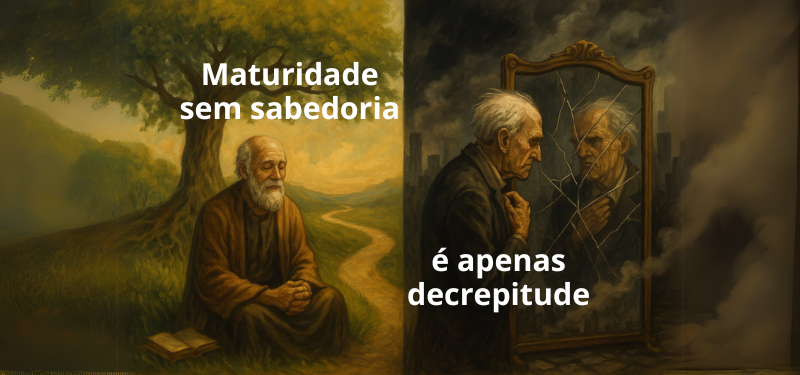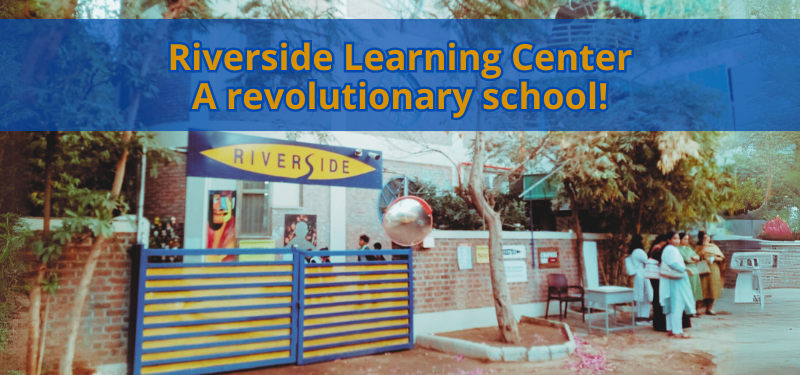Global Forum 2025 – Planting the seeds of change

Dear friends,
I would like to share with you my participation in the Global Forum at Azim Premji University in the city of Bangalore, India. But first I need to express my gratitude for the support we had from friends and partners, who donated to our online Crowdfunding and helped us reach the amount needed to cover the remaining costs for the flight to India. I am grateful for the support of His Holiness the Dalai Lama and his Foundation, which paid the other part of the ticket, and to Azim Premji University, which hosted me on its campus accommodation, offered delicious meals during the event days, and took super special care of me and all the participants who traveled from other countries to participate in the event. The photos and videos presented here are a combination of recordings made by me and photos taken by the university staff. I did my best to identify and introduce myself, even if briefly, to everyone I had the honor of meeting and spending time with during the event. Even so, it was impossible to meet all the amazing people present there, so I’m sorry for those who I couldn’t connect, but hopefully we’ll be together again in the future.

The Global Forum’s proposal was to plant the seeds for the changes we want for the Education in the Third Millennium. We are facing an immense challenge: changing educational practices that are currently increasingly competitive, capitalist, exclusionary and devoided of human values, causing a cascade of problems that arise from the first school years until university graduation.

Azim Premji University is a philanthropic state institution with the purpose of working towards creating a more humanized, fair, equitable and sustainable society.


All classrooms, laboratories, dining hall, auditoriums and pavilions are spacious, very well signposted and with an excellent structure, they also have a huge Amphitheater where some cultural presentations take place regularly on campus.


Meals were served in the dining hall and there was a variety of typical Indian dishes, always accompanied by dessert.
Young university students walked around the university, they worked as volunteers to help participants find the rooms where different activities were taking place. As the campus is very large, people often get lost. I myself got lost on several occasions in different paths and sometimes I was literally taken by the hands of very cute students who wanted to know everything about what our work was, where we were coming from, if it was the first time in India, etc. You could see the sparkle in their eyes and the satisfaction they felt in studying there. Many praised the university and especially the teachers, who, as some reported: “they help us inside and outside the classroom, it’s a real family.”
The university’s main objective is to contribute to the social sector through scholarships, offering high-quality academic training, the development of public policies and being a reference for inclusion and quality. They have two active campuses, one in Bangalore, another in Bhopal and a third still under construction.

About Azim Wipro Premji – He is an Indian businessman. He is the chairman of Bangalore-based information technology services company Wipro Technologies. Azim Premji has prestige and fame in his country compared to foreign technology entrepreneurs like Bill Gates. According to Forbes magazine, “Premji is among the world’s most generous billionaires, having donated $21 billion to his charitable foundation.”
Azim strongly believes that companies have a responsibility to employ ethical, fair and ecologically sensitive business practices, and to engage with key social issues. Wipro is recognized as a global leader in sustainability for its social and environmental initiatives covering all countries in its area of operation.
In 2001, Azim founded the Azim Premji Foundation, a non-profit organization focused on improving quality and equity in India’s public school system. The Foundation works with over 350,000 schools across seven Indian states. She also manages the Azim Premji University, which focuses on teaching and research programs in education and other areas of human development. The Azim Premji Philanthropic Initiatives supports non-profit organizations working in areas of human development and education, such as nutrition, local governance and the well-being of vulnerable groups. Azim’s $15 billion donation to the Foundation’s endowment makes it one of the largest foundations in the world.
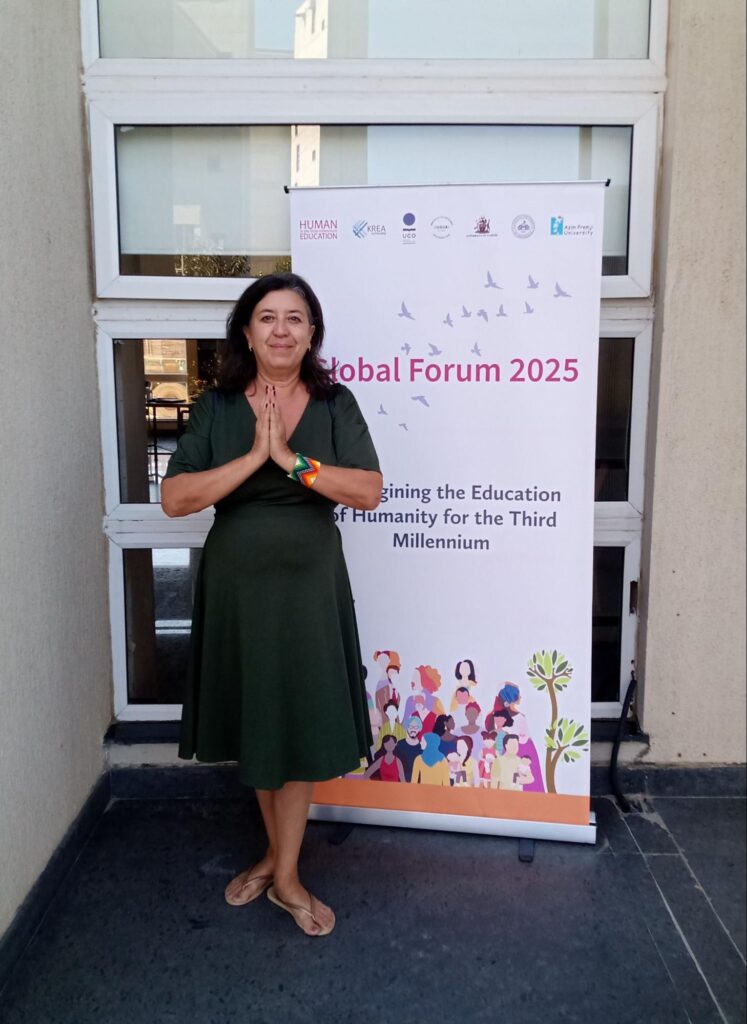
The beautiful auditoriums were decorated with very colorful paintings, full of symbolism and images that reflected Indian culture. It was an aesthetic and inspiring pleasure to walk around the campus. It was even fun to get lost and wander aimlessly through the buildings and gardens. In the morning with the cool breeze and the waking sunlight, every angle deserved a photo. The sound of birds felt like a symphony and completed the scenario.
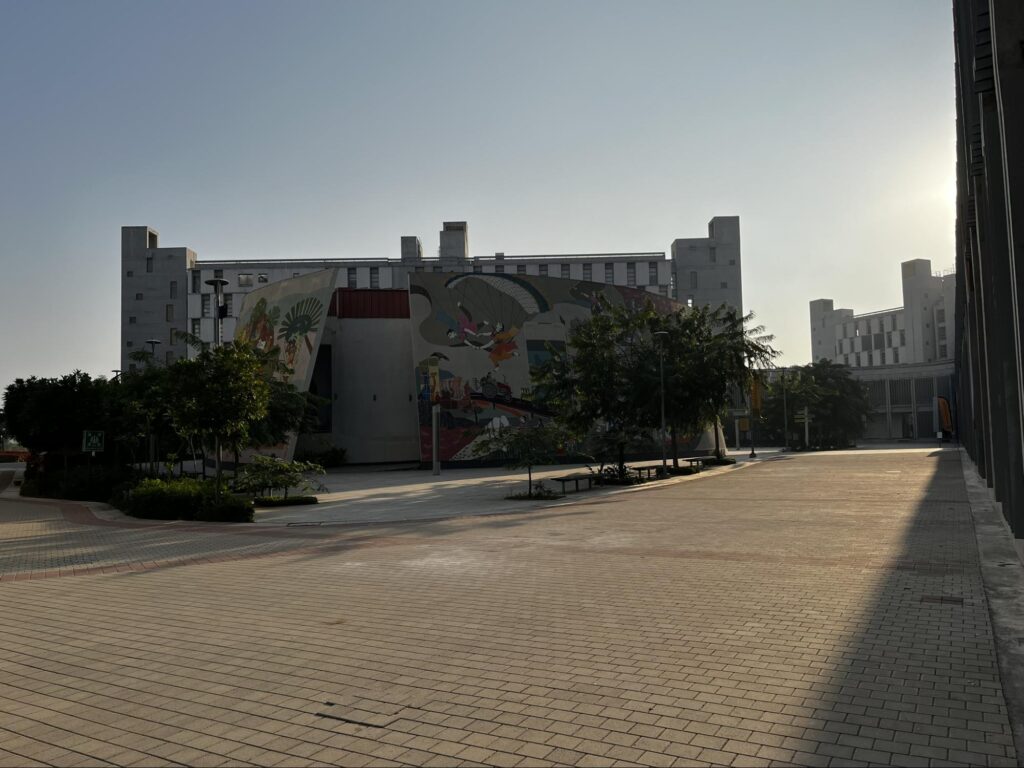
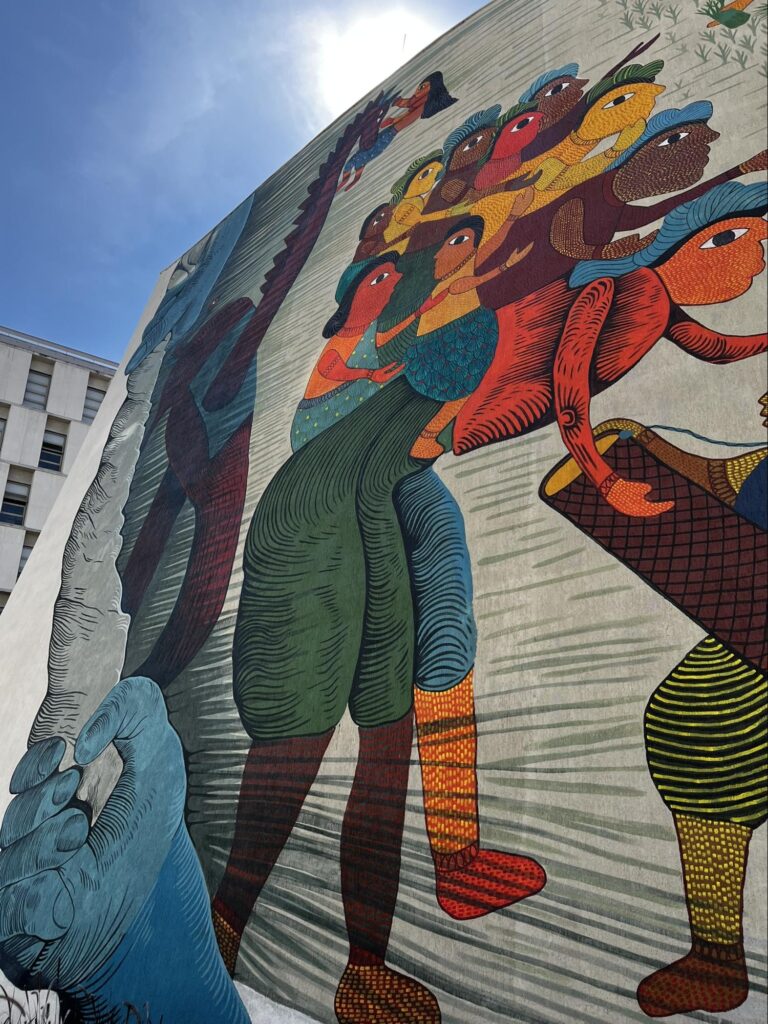
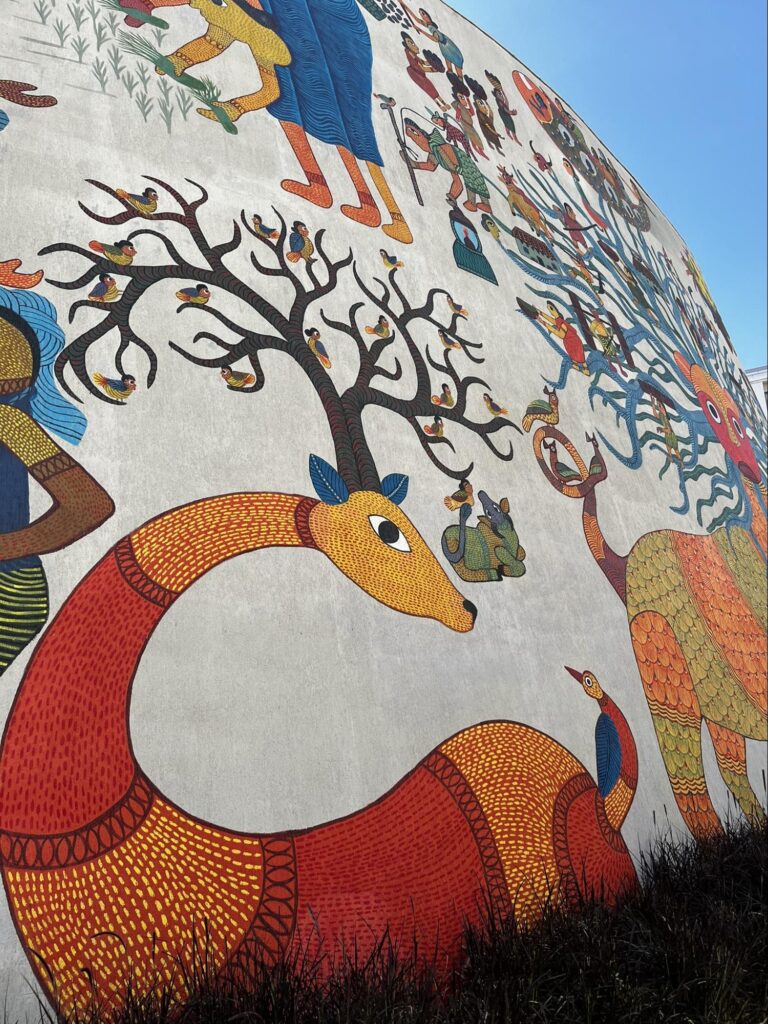
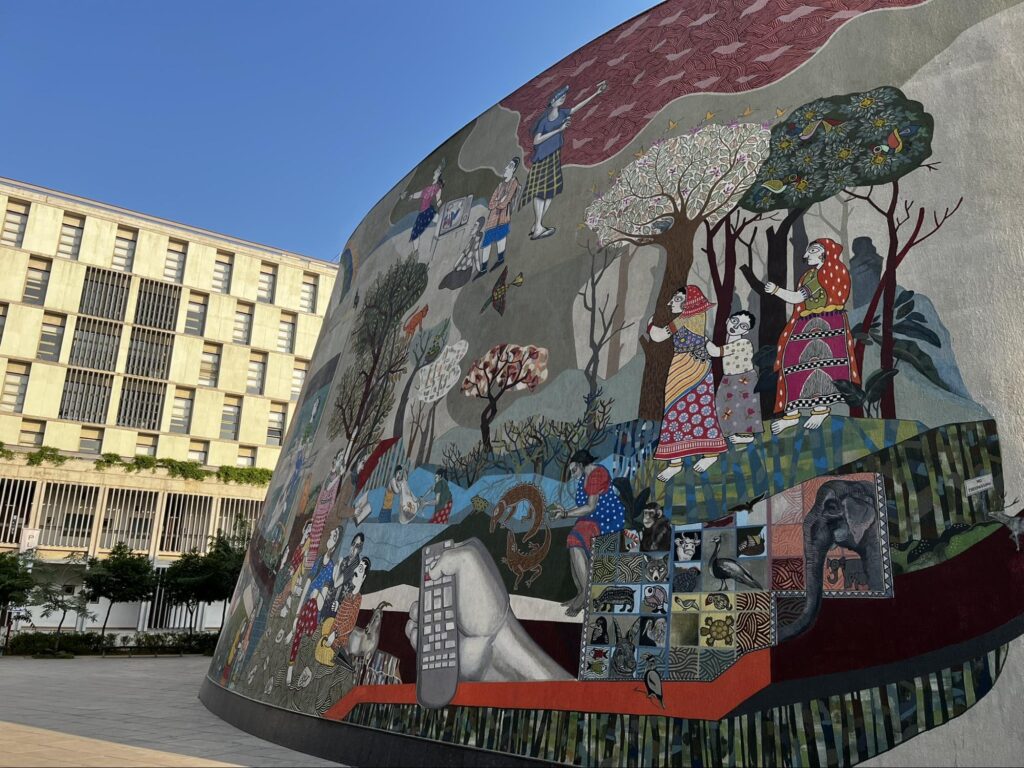
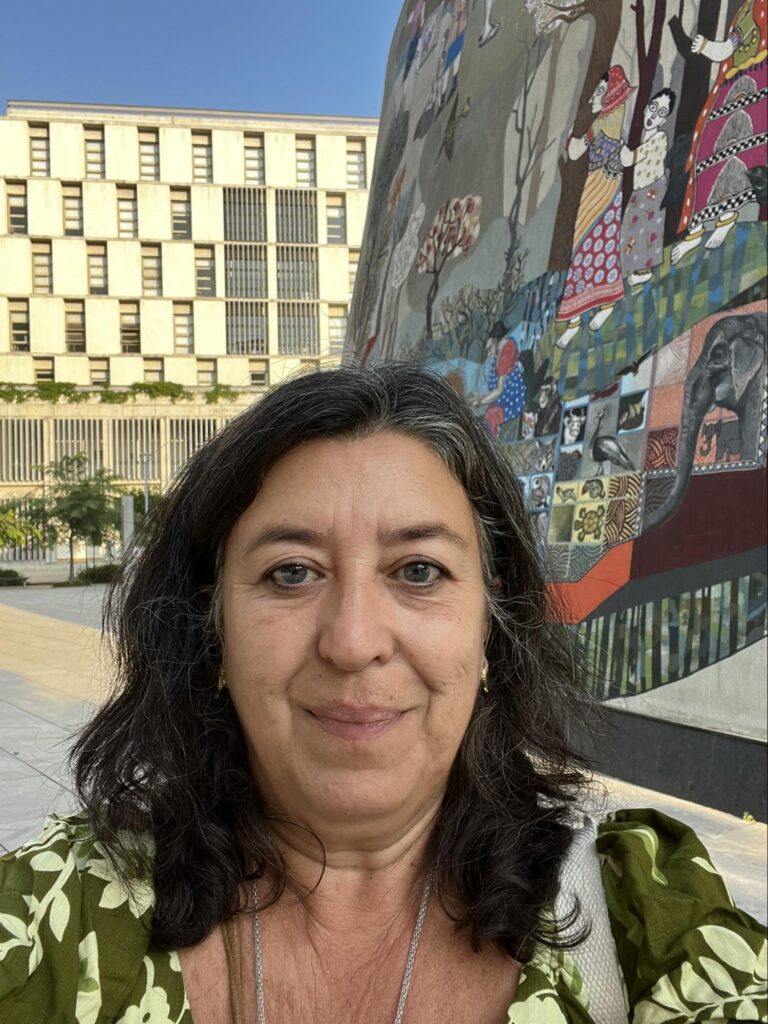
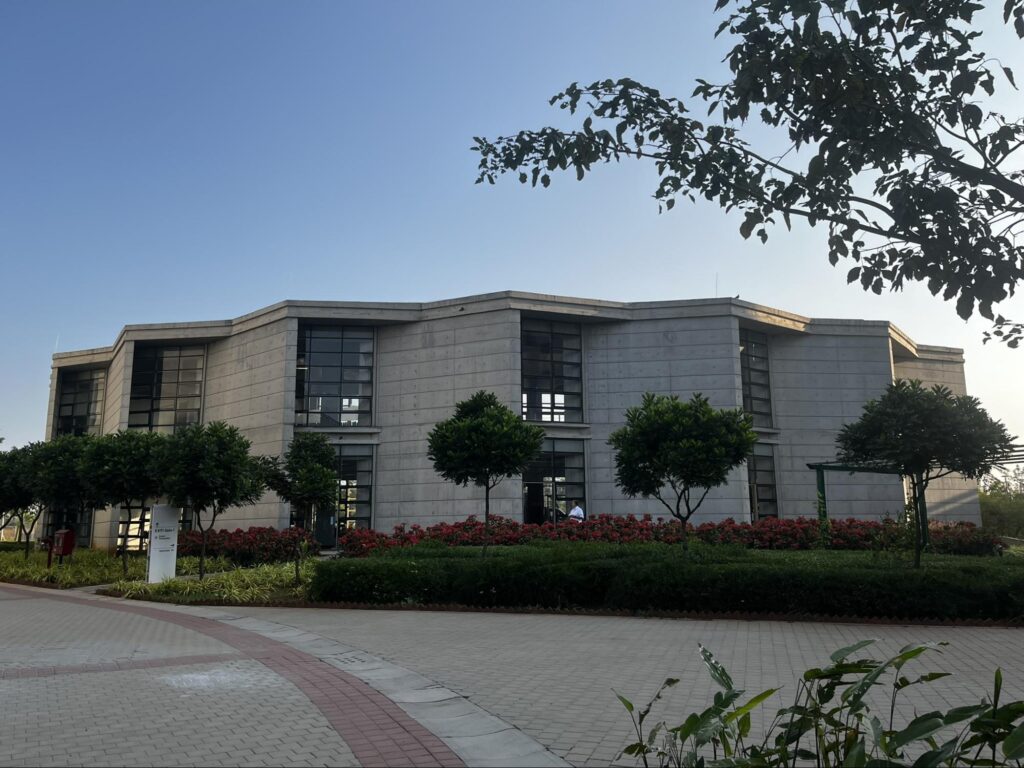
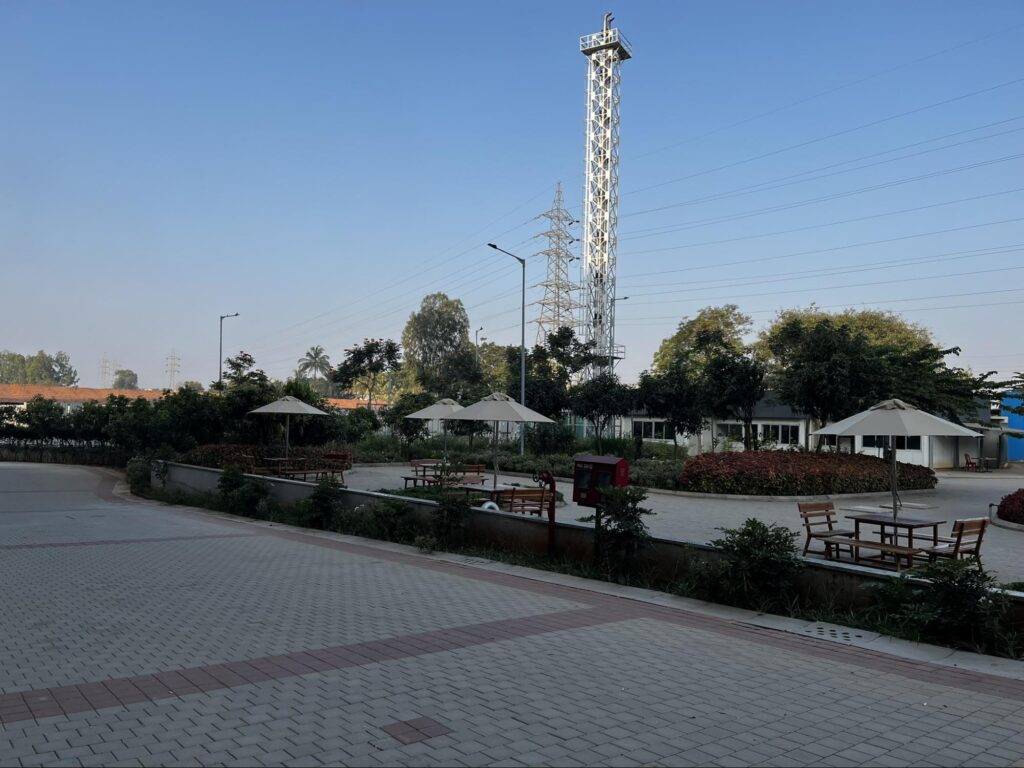
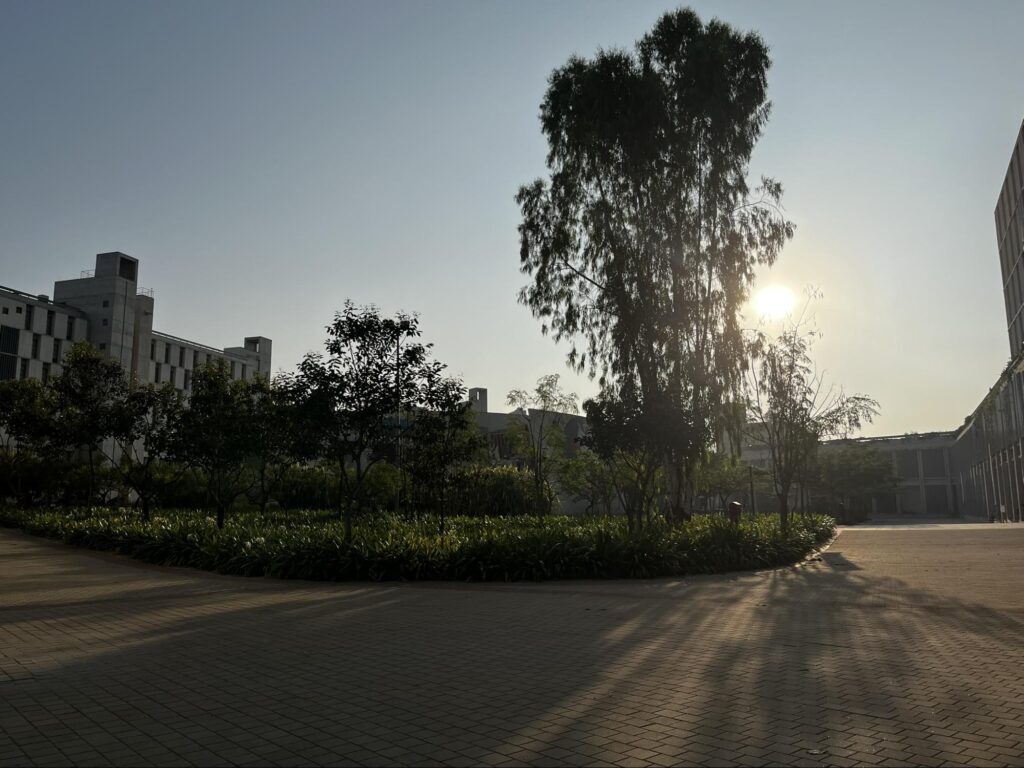
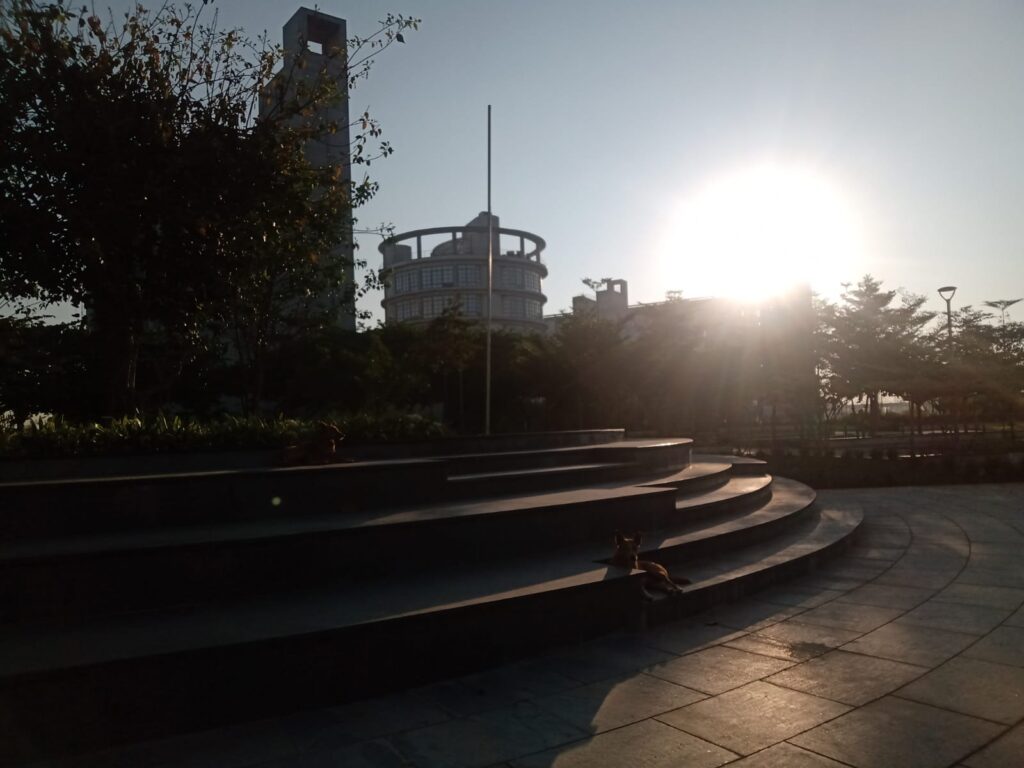
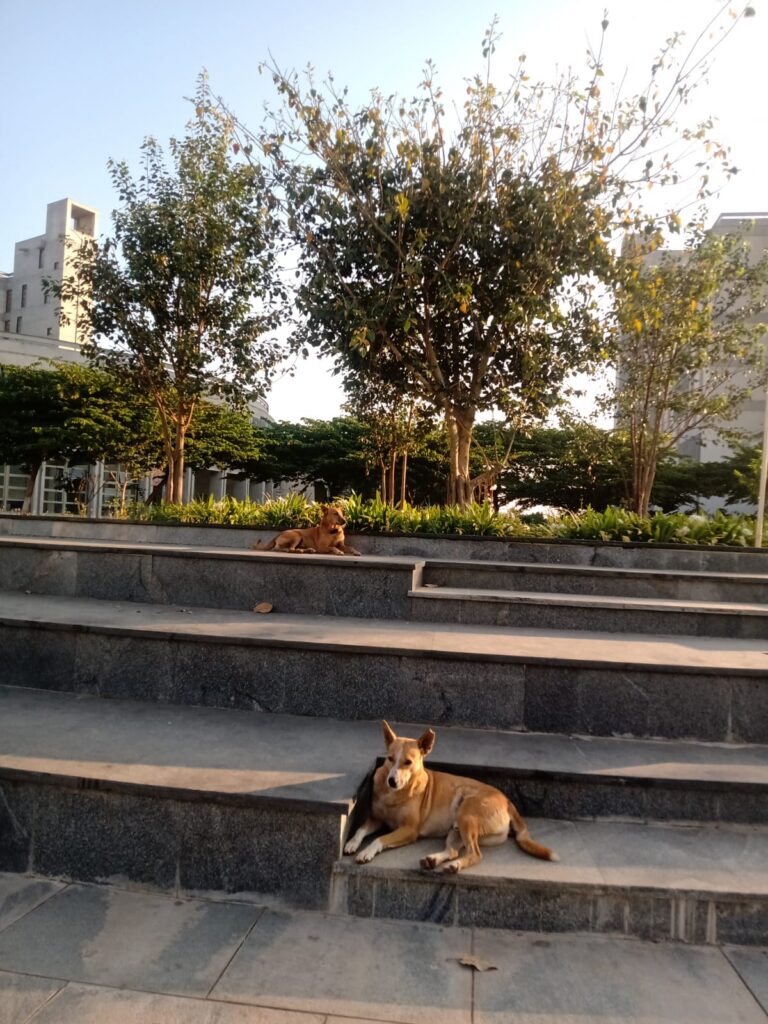
The university is completely philanthropic and offers extensive financial support to ensure that economically disadvantaged students are able to achieve a high-quality higher education.
From the perspective of the university’s principles, it is now possible to understand that the logic that operates in this institution is not capitalist but humanist. This sounds unrealistic to us because when we look around us, we don’t find many examples of great wealth like that of Azim Premji being used for the benefit of the community, what we find in most cases are companies that explore education, where the monthly fees are far above what low-income students could pay. It has been a practice of social exclusion since the beginning, even public universities do not reach populations that come from public schools because the level of difficulty in their admittance exams makes it almost impossible for a student from the state or municipal network to perform well, it is an injustice disguised as meritocracy. But anyway, this presentation is necessary because it explains a lot about the foundations that guide the university’s ideals.
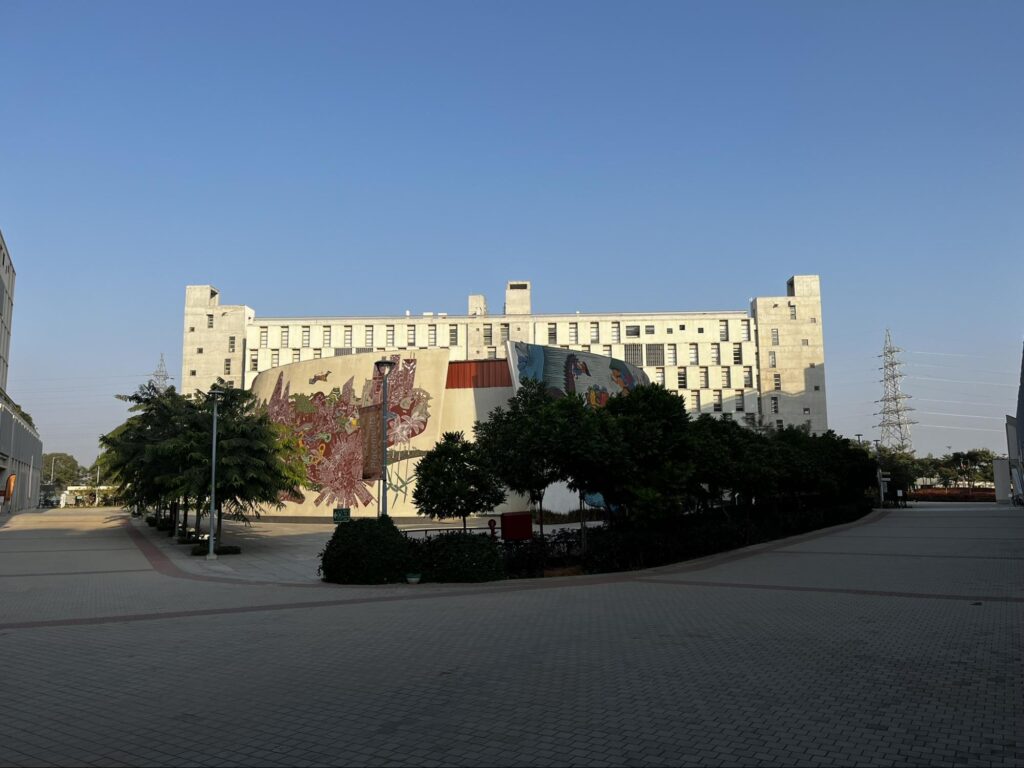
We extend our gratitude to Université Catholique De L’ouest, France; Instituto Universitário Sulamericano, Uruguay; University of Nairobi, Kenya and National University of Mongolia, UlaanBaatar, for their partnership in holding the Global Forum.
We find in the message of His Holiness the Dalai Lama his aspiration so that we can cultivate in the school environment, from kindergarten to higher education, an education of the heart, teaching love, compassion, justice, forgiveness, mindfulness, altruism, tolerance and peace. I think it is important to make a brief presentation of some of the main organizers and guest teachers who were present at the conference and provided us with their visions and aspirations towards reimagining education in the third millennium. Forgive me if I leave some out, but there are a lot of people and the article would become a book if it included everyone. In any case, anyone who wants to know more details about the Declaration and also about everyone who was there can go to the university website and satisfy their curiosity. https://azimpremjiuniversity.edu.in/


Dr. Rajashree Srinivasan – President of the Steering Committee. Professor at Azim Premji University. Her main focus is the development of educators in higher education in India. In 2024, he received an award from the International Society for Music Education for her dedication and article in defense of “Music for All: Nurturing inclusive education in music spaces for children in India”.

Indu Prasad – Vice Chancellor of Azim Premji University, where she has worked since 2005. She has extensive experience in teaching in several states in India and her main focus is Teacher Education (policy, curriculum, practices), she worked with Educational Policies with the Central and State governments.
“Sow and Grow” – Dra.Rajashree Srinivasan, in his opening speech at the Global Forum.

Dr. Boni Fernandes Wozolek – Her most recent award-winning work considers qualitative research on methods and practices that focus on access, justice, and care in schools and student communities. Her monographs include Assemblages of Violence: Everyday Trajectories of Oppression and Educational Necropolitics; A Sonic Ethnography of Everyday Racism in U.S. Schools.
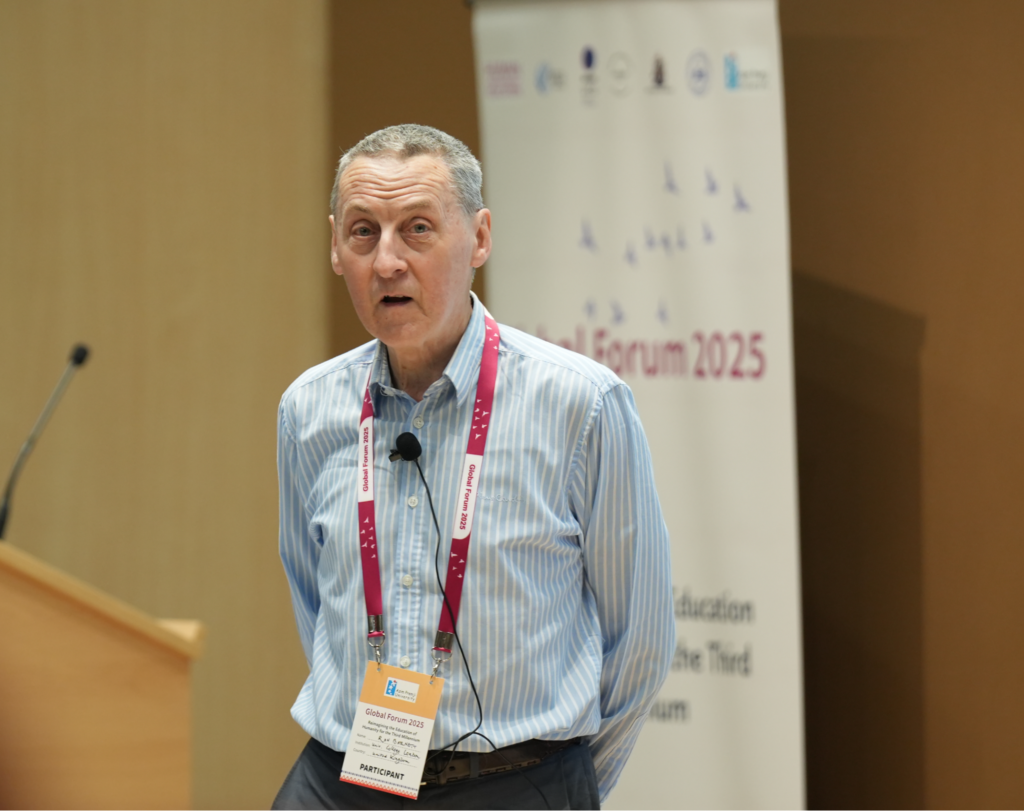
Dr. Ronald Barnett – Vice-President of the Organization Committee.
He is Emeritus Professor of Higher Education at University College London and Emeritus President of Philosophy and Theory of the Higher Education Society. He has written more than 40 books, many of them translated into different languages, has given more than 150 guest lectures in more than 40 countries, has been cited in literature more than 30,000 times, and has received awards and doctor emeritus titles both nationally and internationally.
He actively participated in the drafting of the Declaration that was the central theme of the Global Forum, his speech was very important in clarifying relevant points and also highlighted the urgency necessary to implement changes, after all we are living in dark times, with the advancement of environmental crises, the increase in right-wing parties, the threat to democratic processes and the need to unite in the face of challenges in implementing changes in the “capitalization” of education.

Dr. Margarita Kozhevnikova – Coordinator of the Organization Committee of the International Initiative “Human Education in the Third Millennium”. She is a philosopher, has published five books, 6 chapters and more than 90 articles, most of them in Russian, on the philosophy of man and education. She is an associate professor at the Department of Philosophy of Education at the Postgraduate Academy of Educational Pedagogy in Saint Petersburg.

Telo Tulku Rinpoche – Honorary Representative of His Holiness Dalai Lama in Russia and The Gaden Phodrang Foundation, maintained by His Holiness and responsible for financial support to 35 participants who, like me, received support to purchase a plane ticket to India.
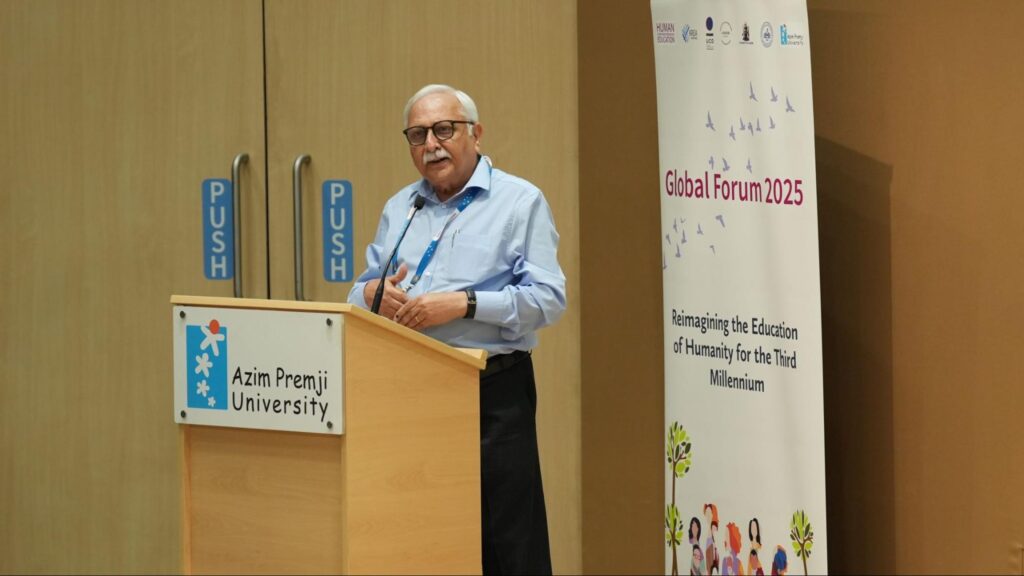
Dr. Rajesh Tandon is an internationally acclaimed leader and practitioner of participatory research. He holds the Chair of Community Based Research at UNESCO. It has a large contribution to local, national and international initiatives in promoting participatory development of society. He is a pioneer in creating new meanings in the relationship between researcher and researched.

Dr. Madhusudhan Ramesh – Member of the Program Committee. He is an assistant professor at Azim Premji University.
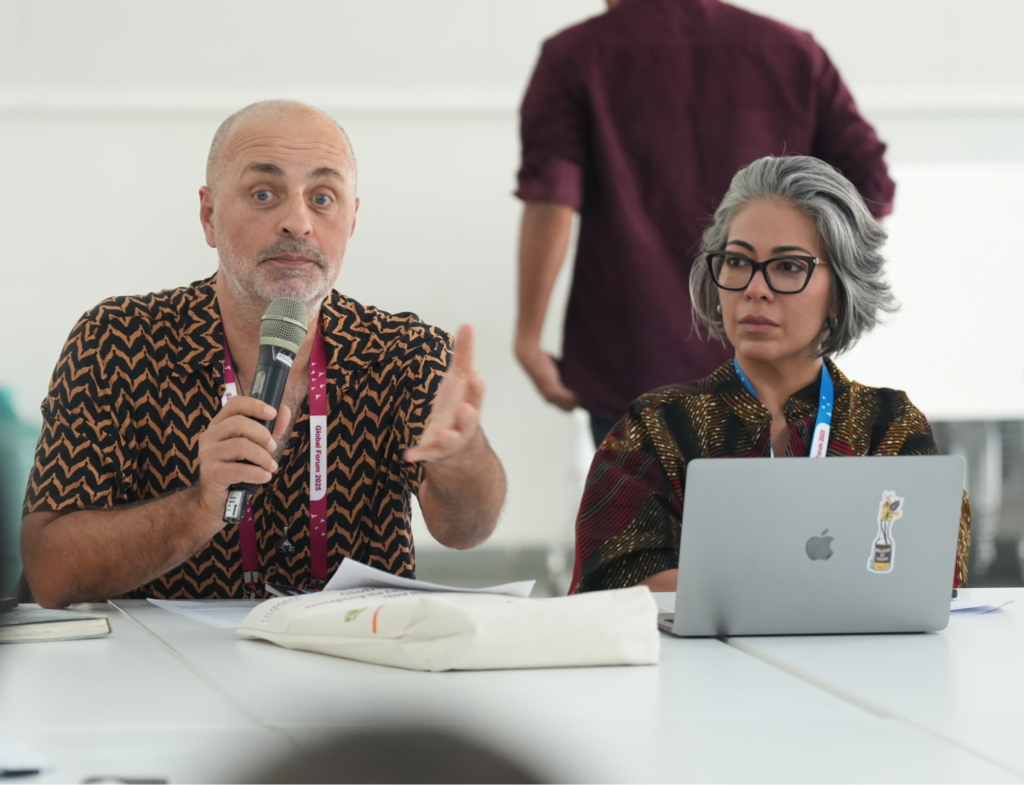
Dr. Walter Omar Kohan – Professor of Philosophy of Education at the University of Rio de Janeiro (UFRJ), member of CNPQ, FAPERJ and Capes and the Brazilian Ministry of Education. He is co-editor of the magazine Infância e Filosofia. His most recent books include Thought, Childhood and Time: Contemporary Perspectives on Education Policies; Paulo Freire: A philosophical biography (Bloomsbury, 2021). Paulo Freire: a 100 year old boy (NOSE, 2021, free download no filoeduc.org/editora); The journey of impossible dreams (Autêntica,2022). Ceane Andrade Simões, Professor at the Amazon State University.
Walter Kohan in his lecture emphasized the importance of the critical role of education and his belief regarding the role of people and the community in helping, in harmonious, flexible coexistence and respecting differences. Inspired by the work of Paulo Freire and Nego Bispo, he presented concrete examples of how this can happen. Aligned with the points presented in the Declaration, it seeks to engage the critical participation of individuals with a pedagogical responsibility rooted in care and equality, nurturing the principles as seeds that generate change.
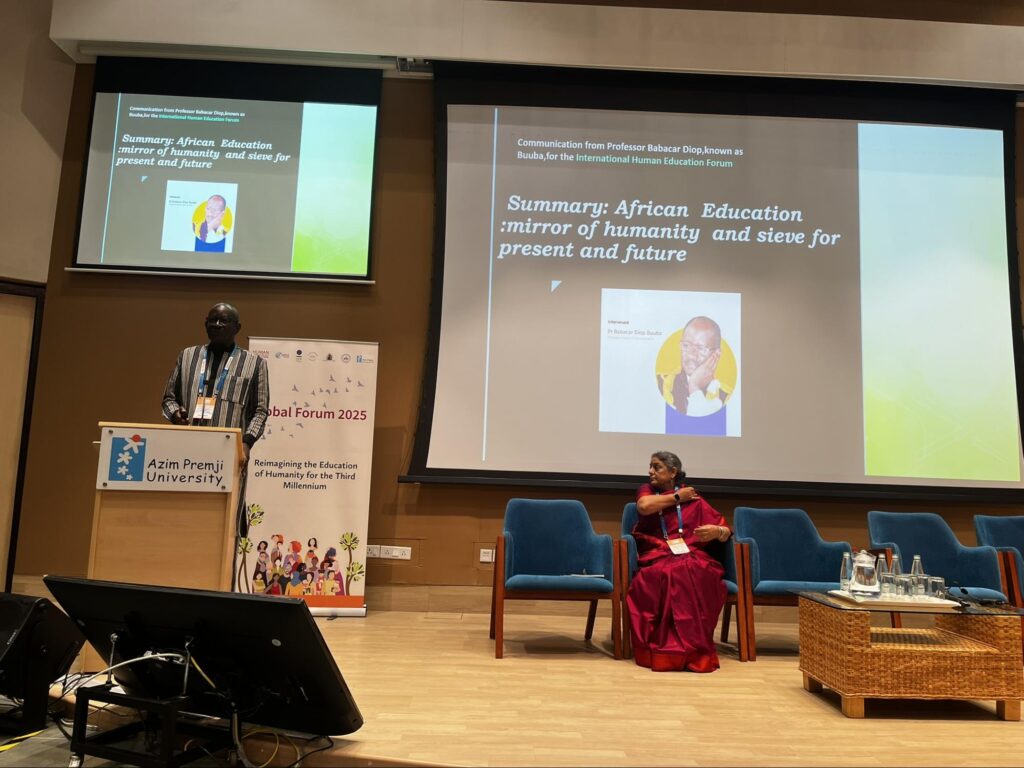

Dr. Babacar Drop – Cheik Anta, University e Poonam Batra – Former Professor, Central Institute of Education, Delhi University.
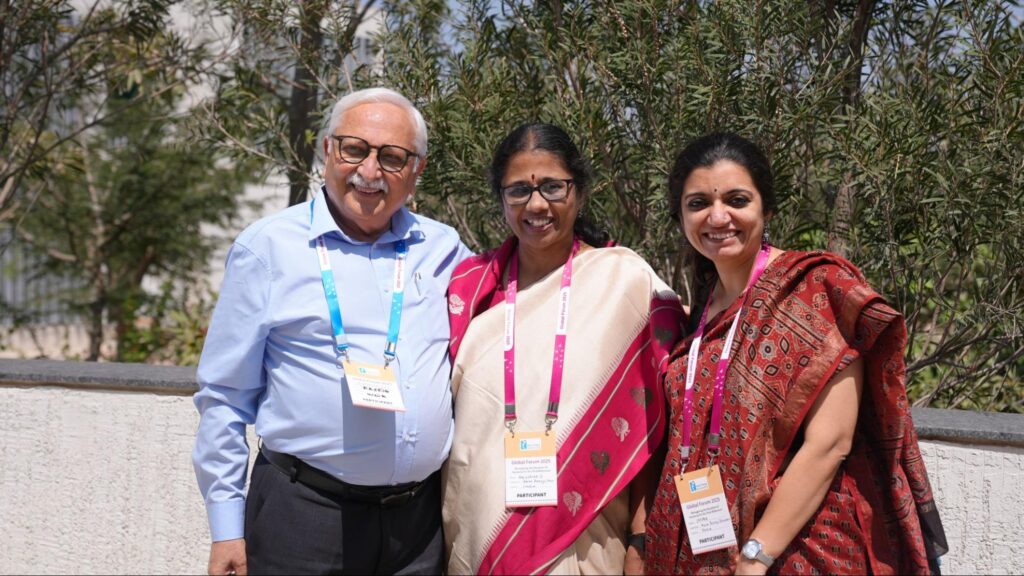
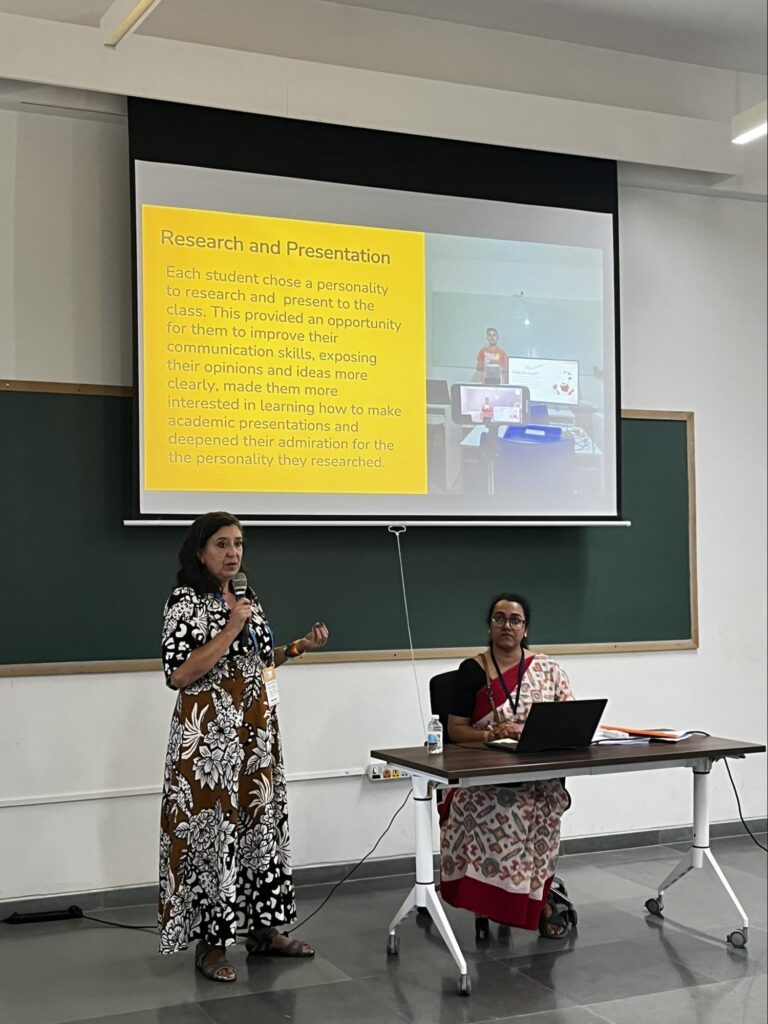
Regina Proença – Fora da Caixa Cultural Collective
The presentation of our program Education for Peace and Ecocidadania carried out in partnership with Educational and André Luiz Institute, took place on the first day of the Forum. Many colleagues approached me with questions and compliments about the methodology and results obtained during the implementation of the actions.
This recognition motivates us to improve our actions and gives us extra energy to face the challenges that lie ahead. In Brazil, there are still few examples of programs like ours, especially when it is carried out without sponsorship and outside the school system. However, this leaves us much freer to develop ideas and processes that are not contaminated by capitalist logic or political influences that do not value critical thinking and solidarity. Everyone involved in the project is a volunteer and children and young people do not pay anything to participate in the program.
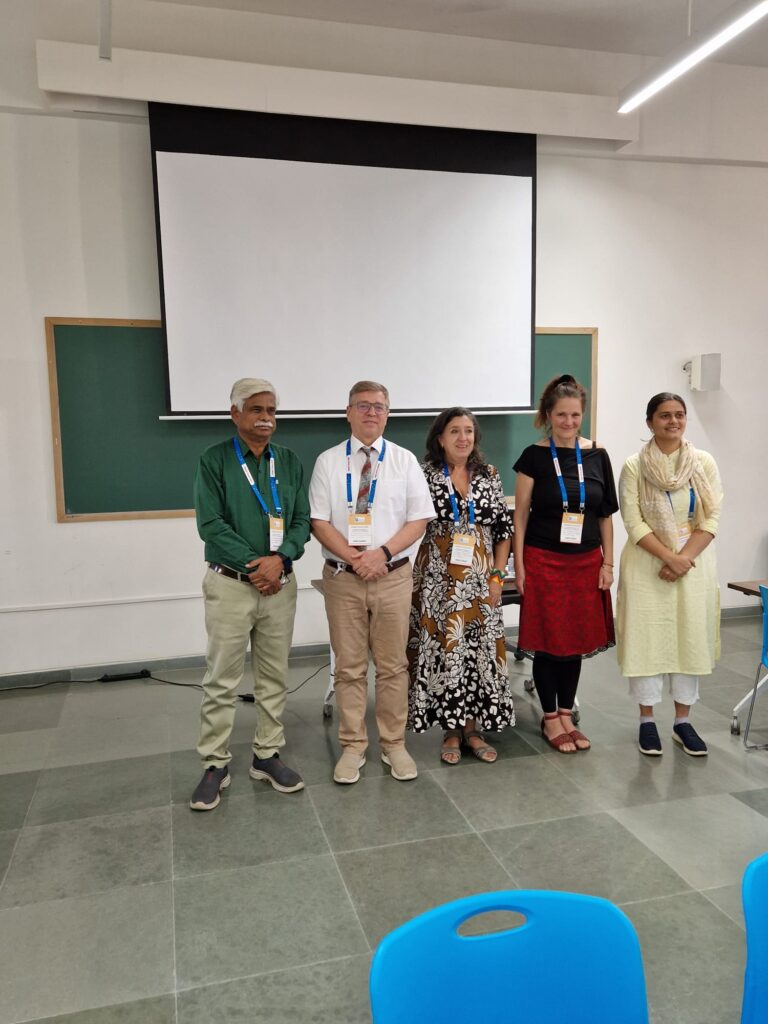
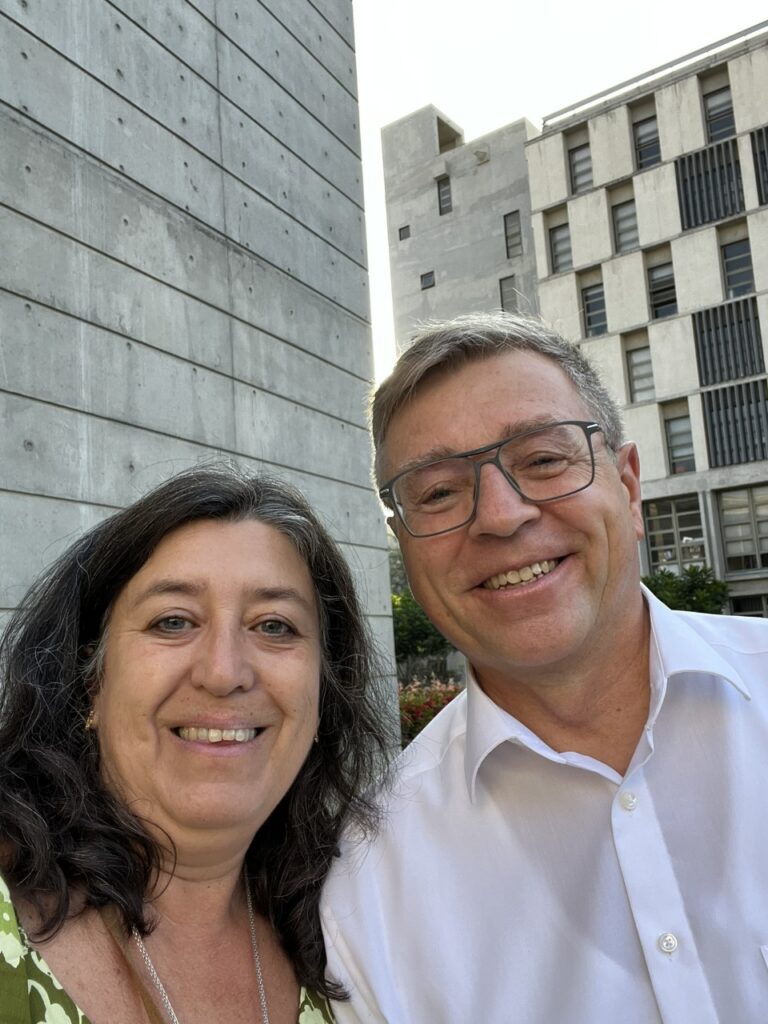
Sebastian Guenther from the University of Gottingen. Coordinated the round table that dealt with Ecojustice and the Anthropocene in theory and practice. Our work on Education for Peace and Ecocitizenship was part of this theme.
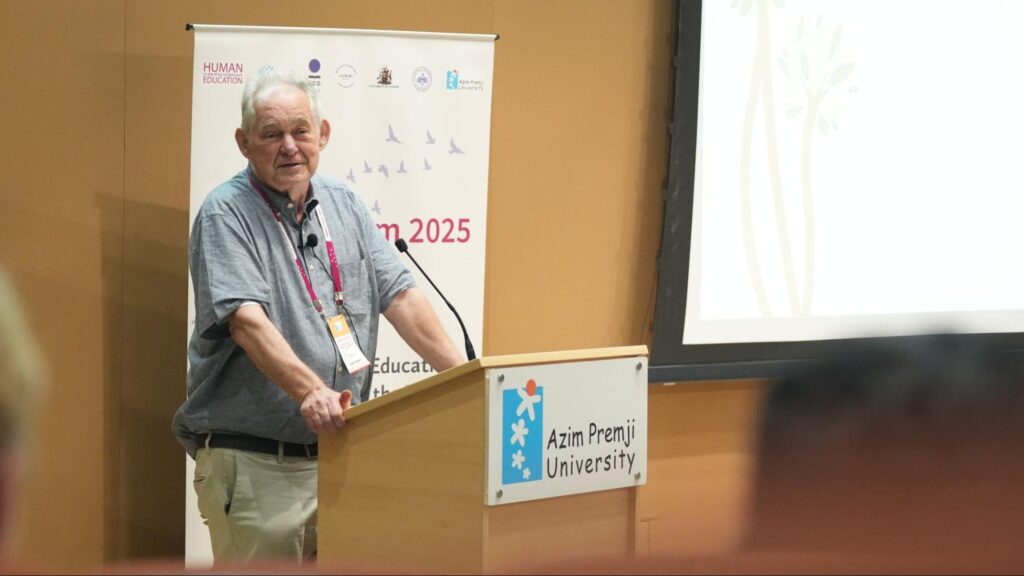
Dr. Christoph Wulf is Professor of Anthropology and Education at the University Brake in Berlin. Among his actions he was the founding secretary of the Education Committee of the International Peace Research Association, president of the Educational Science Network Amsterdam and the Pedagogical Anthropology Committee of the German Society for Science Education.
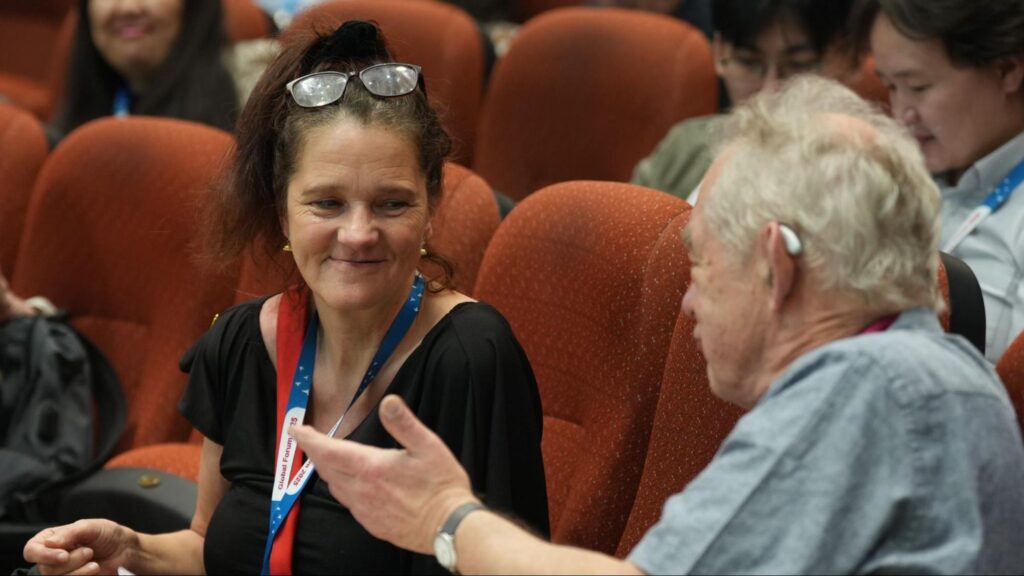
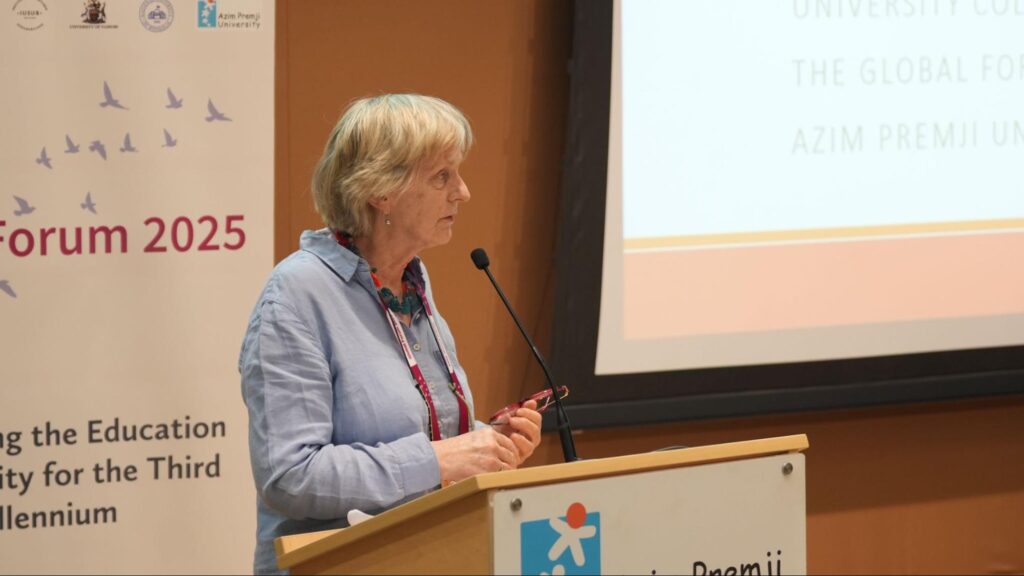
Dr. Kathleen Lynch – is a sociologist and Emeritus Professor of Equality Studies at University College Dublin (UCD), and is a member of the Human Rights Ireland and Equality Commision (IHERC). Her most recent book Care and Capitalism: Why Affective Equality Matters for Social Justice (Polity Press, Cambridge), the next book to be published will be A Critique of Human Capital in Education, will be published in 2025 by Routeledge. More about Kathleen Lynch: https://people.ucd.ie/kathleen.lynch
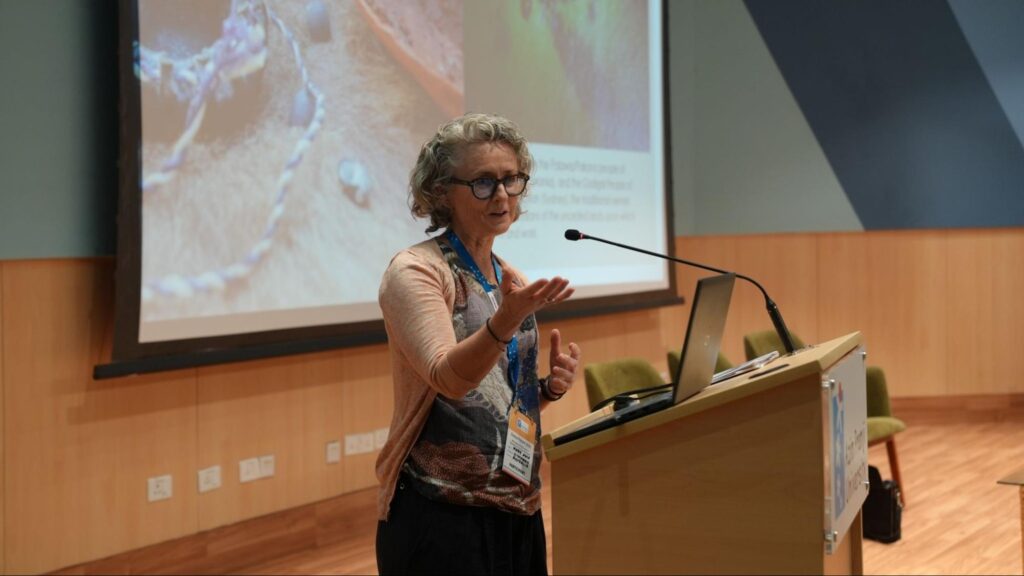
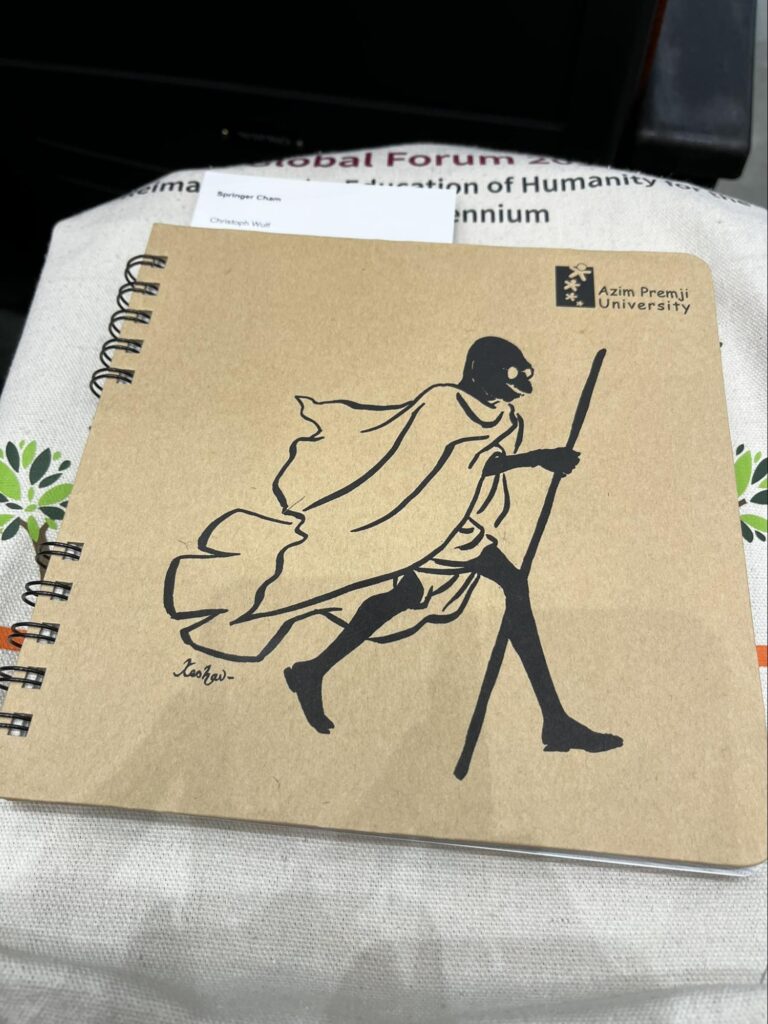
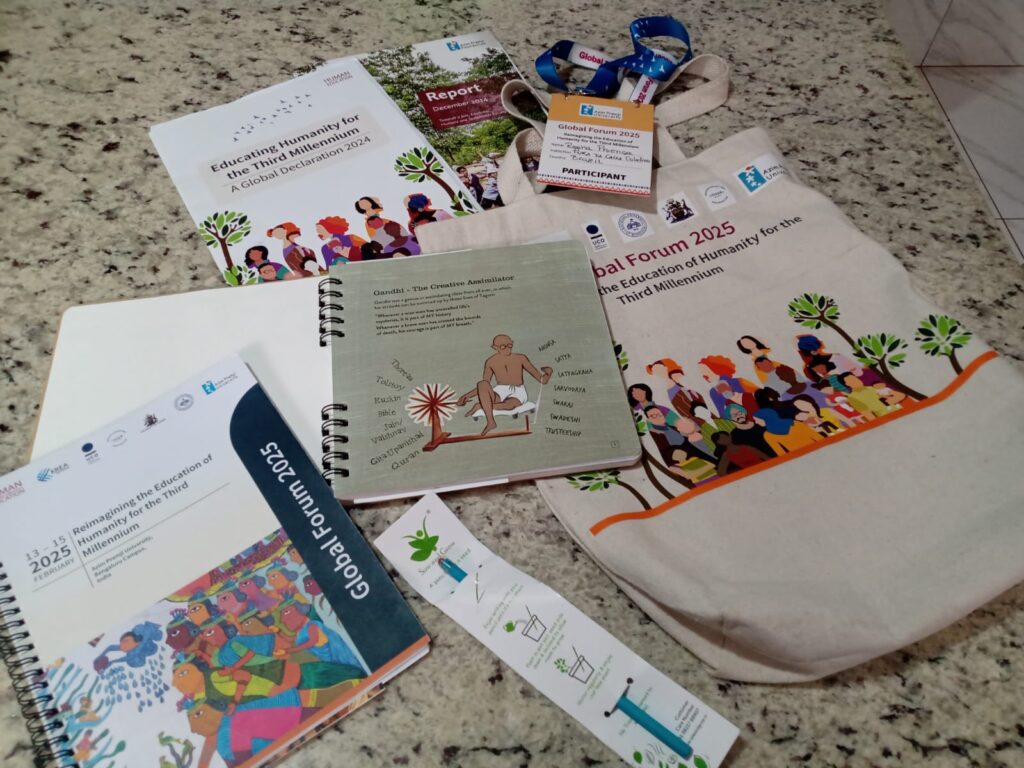
I couldn’t help but mention the gift we received along with the beautiful bag that contained material about the Forum’s programming.
This book tells important and inspiring moments in the life of Mahatma Gandhi, it is incredibly beautiful and creative, with drawings, poems, letters and an exquisite illustration. A treasure that I received with great emotion. After all, if I was there it was because Gandhi’s teachings many years ago touched my heart, without him nothing I have done as an educator up until today would have no meaning. Namaste Gandhiji!
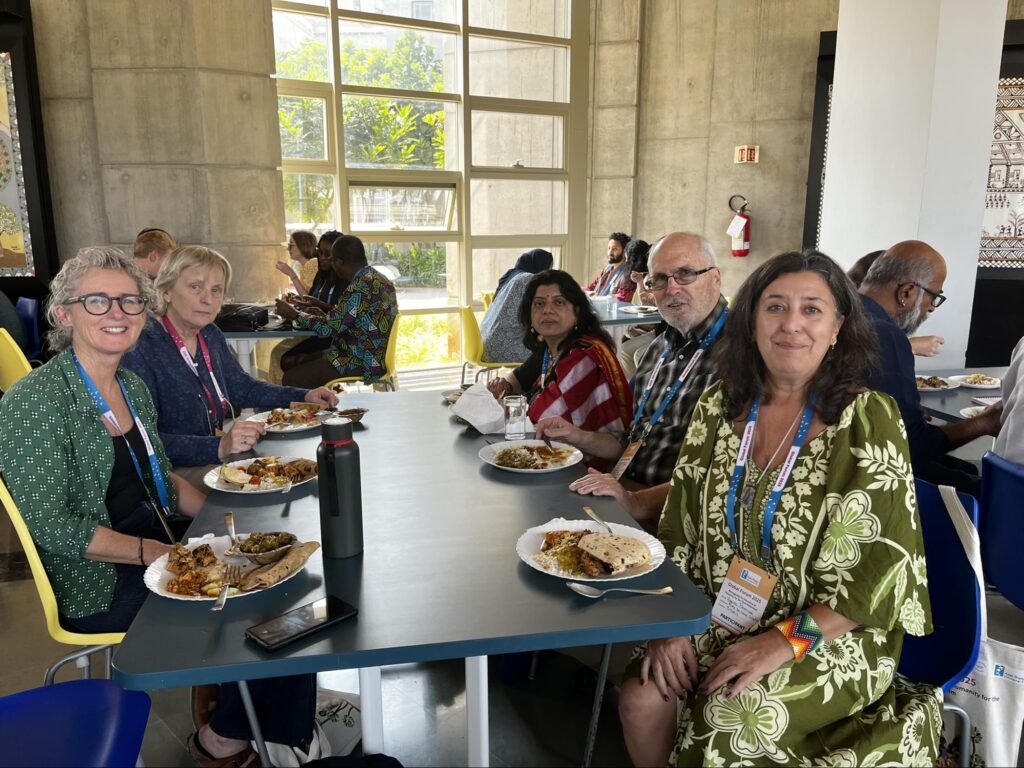
During meals conversations took place informally and bonds of friendship were formed.
We had several Discussion Groups about the items found in the Declaration that we are developing. The main points were covered, everyone was able to offer their perspectives and reflections. This participation will be essential for us to reach a final version of the document.
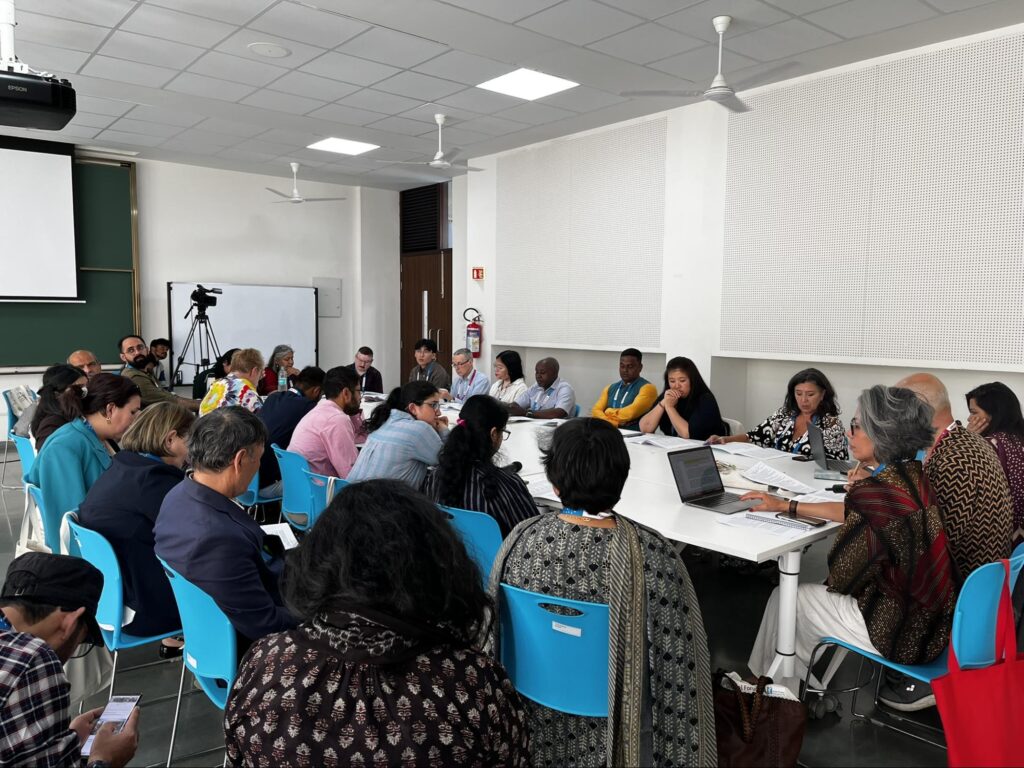
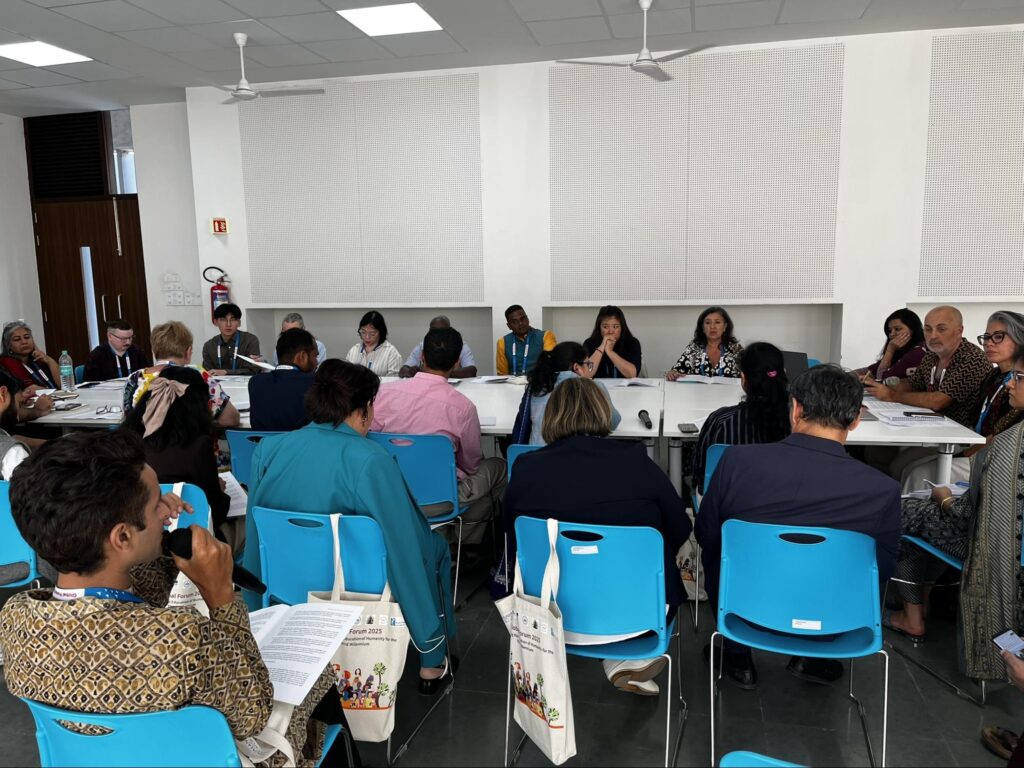
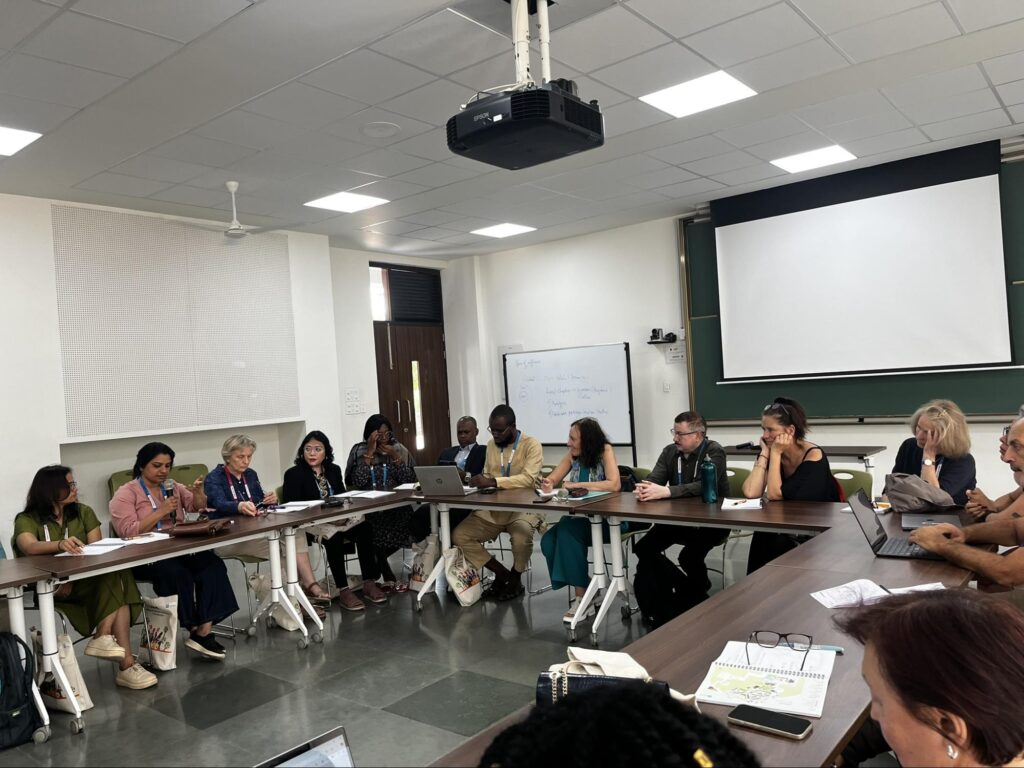
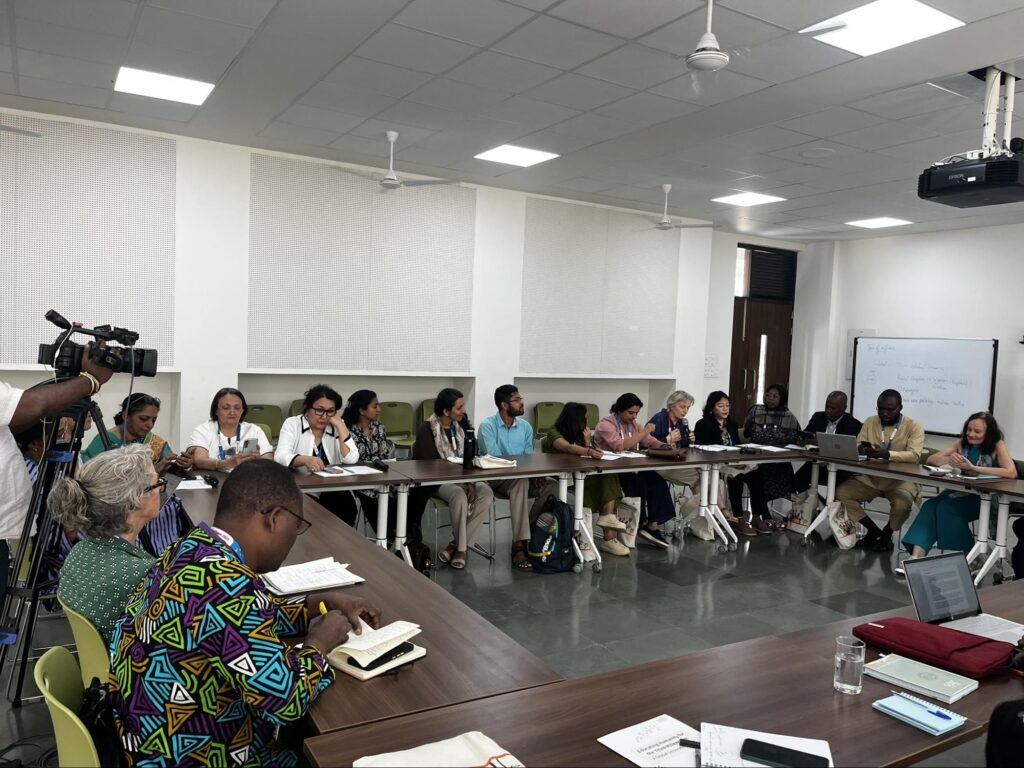
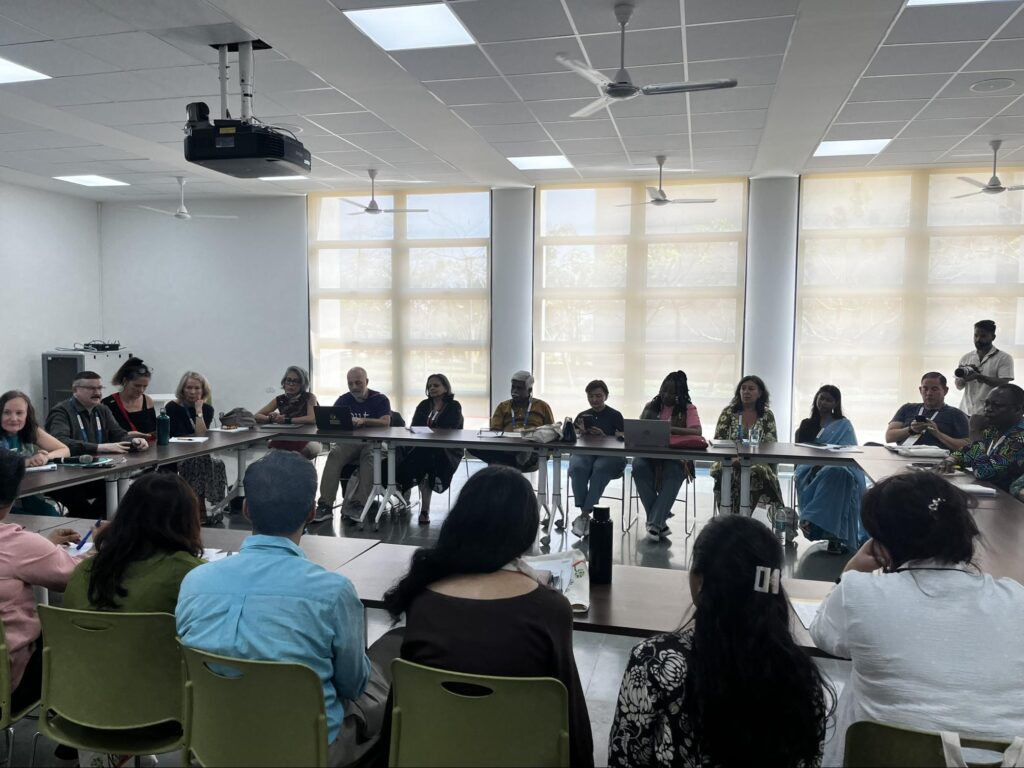
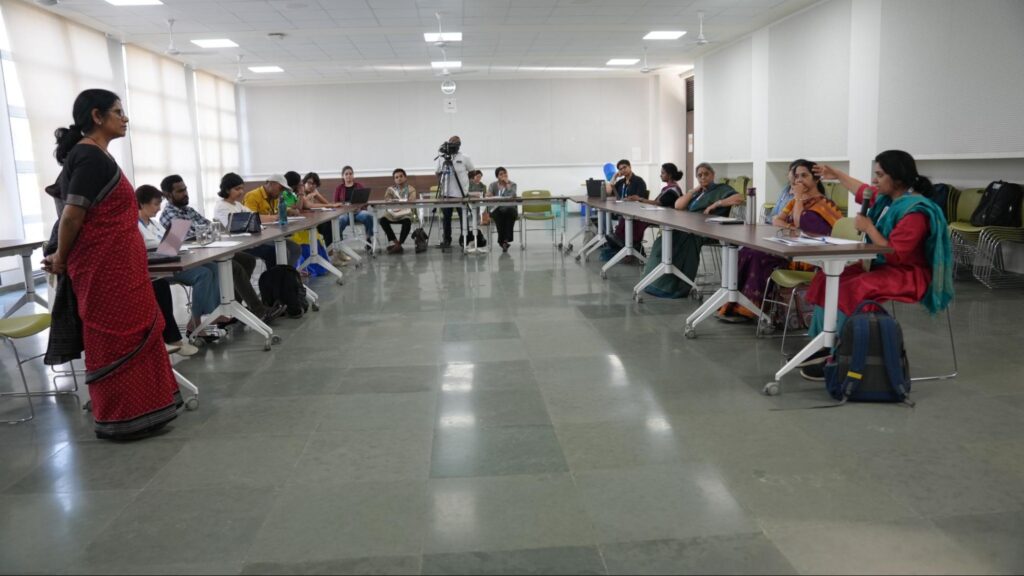
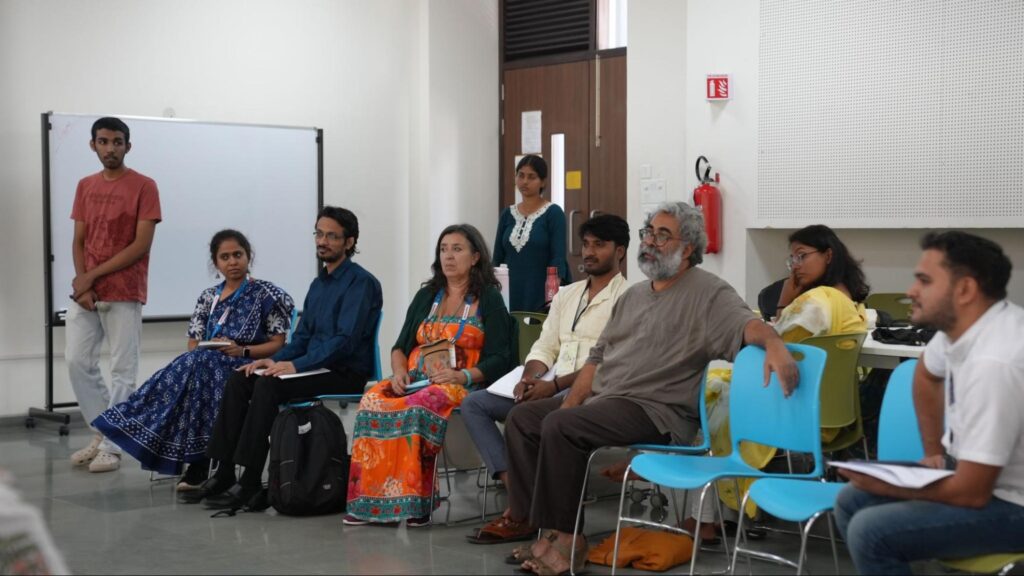
This process began at this Forum, but as part of the development of the guidelines we were invited to create teams that will meet virtually and also at the next Forum, which still has an undefined location, some suggested that it be in Africa, Brazil is also highlighted as one of the possible locations for the next meeting.
Our team will be committed to contributing in the best possible way to disseminate the educational practices that we have developed over the last 10 years and which have proven to be very effective in terms of social inclusion, dialogue, harmonious coexistence and empowerment of children and young people, both in the academic and ethical spheres.
The results we obtained in the partnership of the team of Fora da Caixa Collective with the Educational and André Luiz Institute are truly inspiring. Our example is being closely followed by educators, university professors and philanthropic institutions from several countries. We have received several invitations, including to co-supervise research on the themes we developed in our program, from the University of Amsterdam and more recently from George Washington University, in the United States.
Among the topics covered during the lectures in the main auditorium were: Education for Humanity in the Third Millennium, The Anthropocene: Education for Sustainability in the midst of the Climate Crisis, Education as a Shared Responsibility for Building Communities, Feelings, Ethics of Care, and Love: Considering Educational Affects, The Critical Role of Education in Society, Technology and Artificial Intelligence: Challenges for Humanity, Prospects for Peace and the Value of Recognition in a Controversial Era.
Posters, Panels and Surveys
Students from the university and surrounding schools were invited to present their projects during the event, including posters, research projects and initiatives that were aligned with the Forum’s purpose.
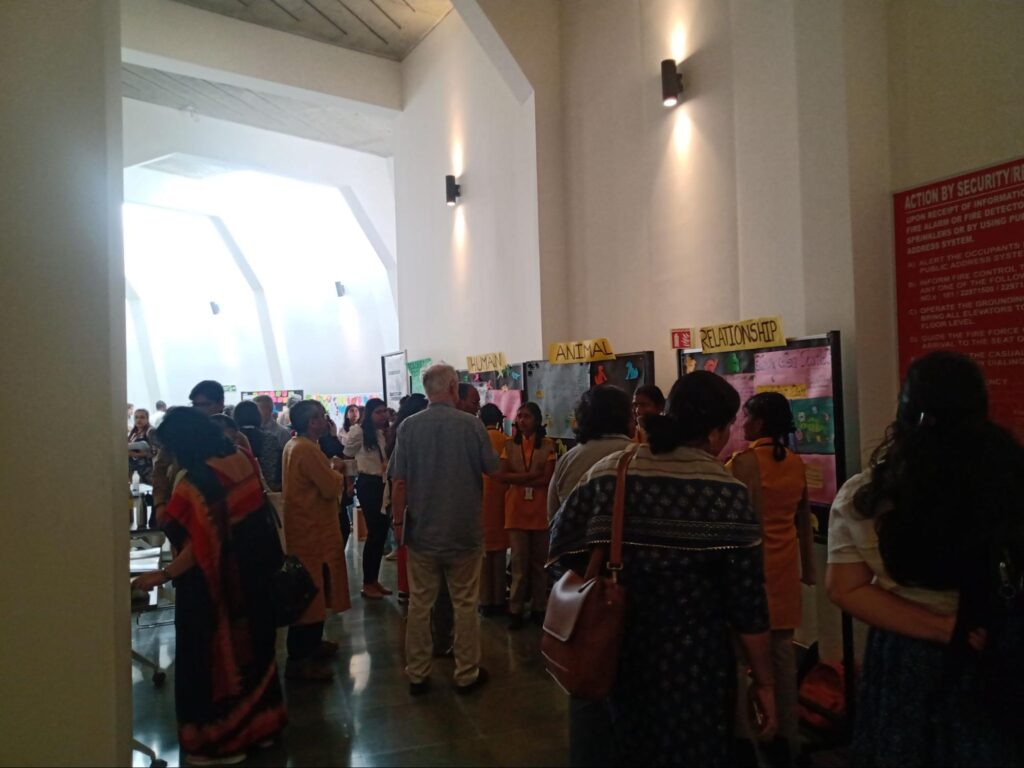
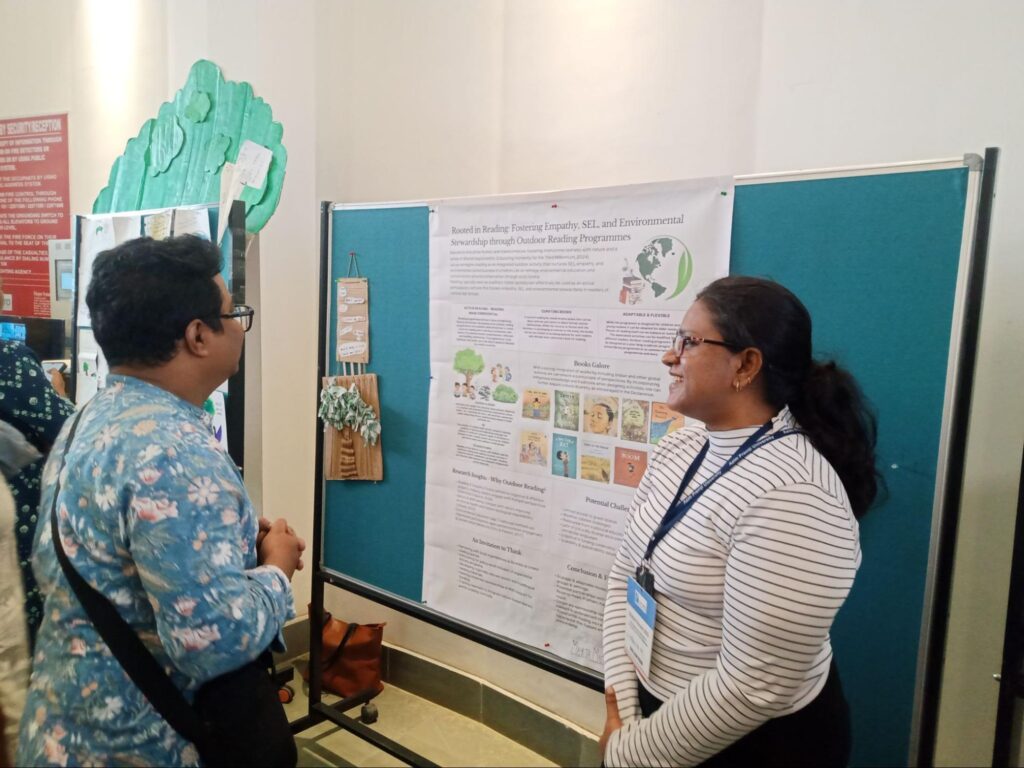
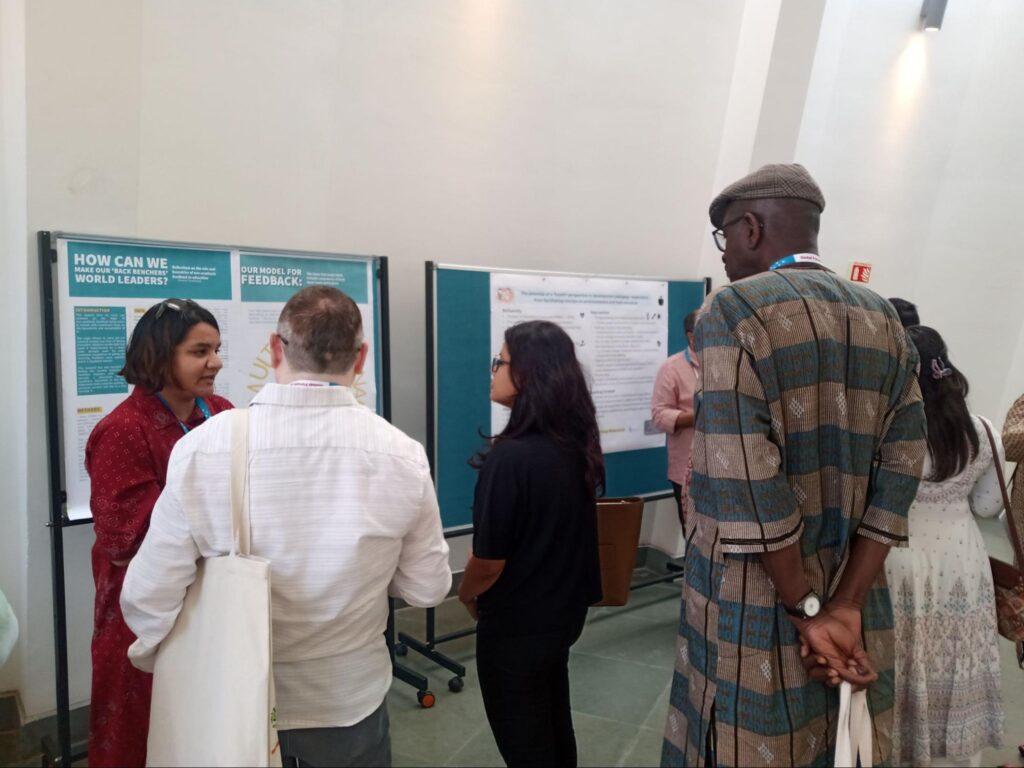
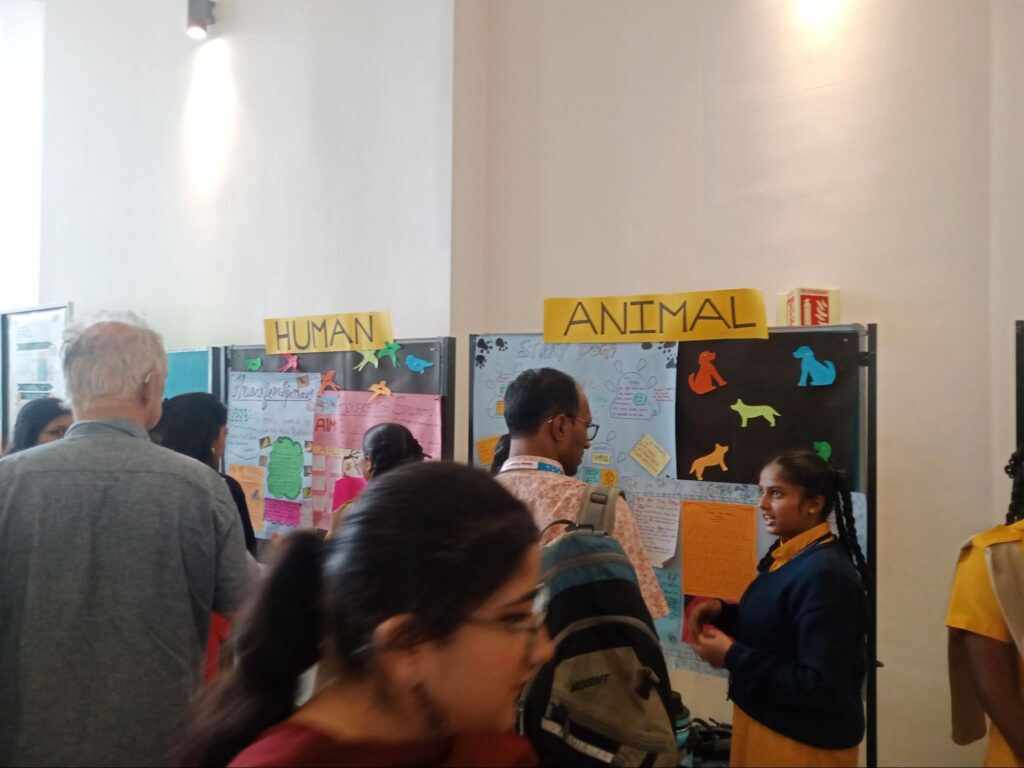
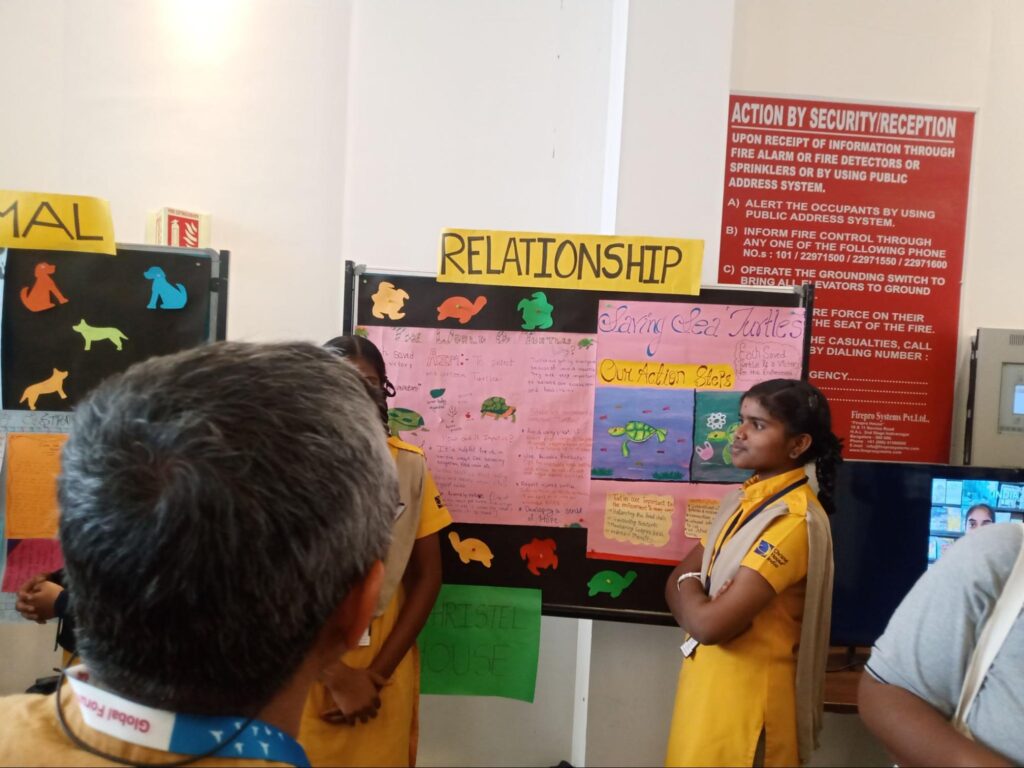
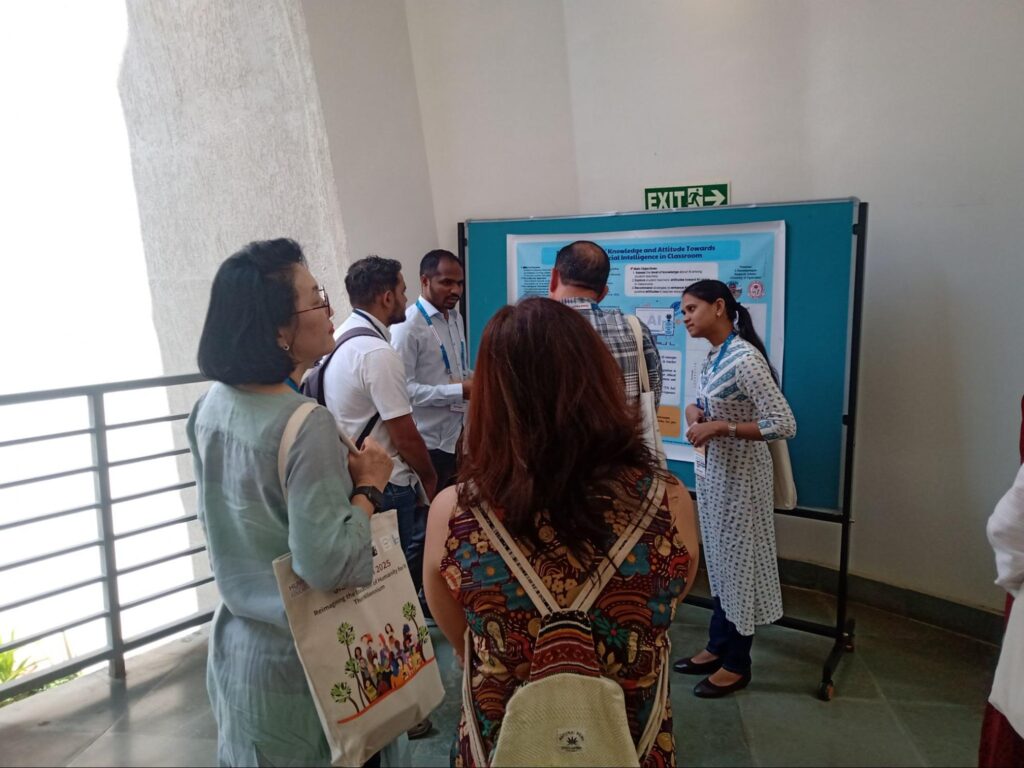
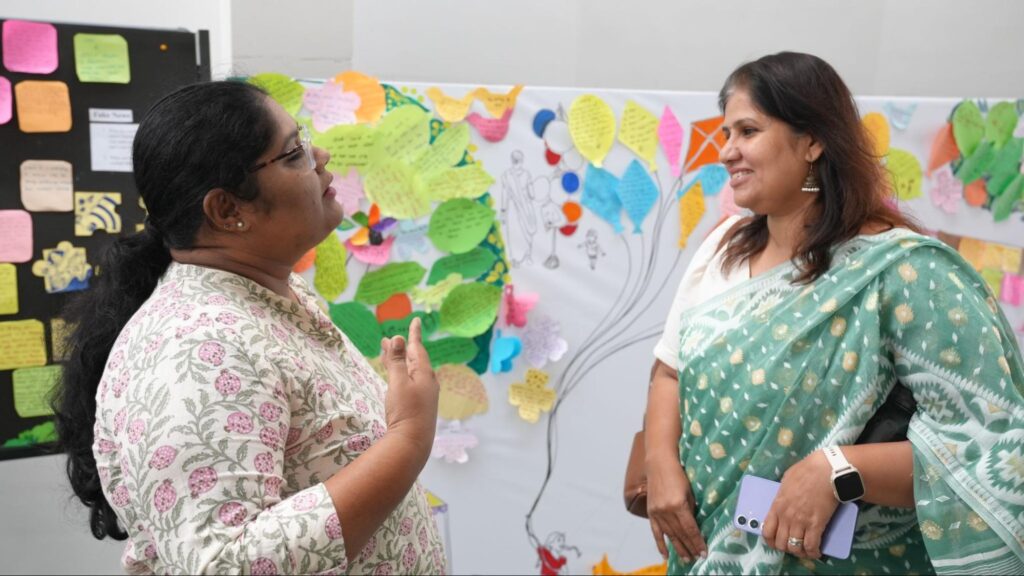
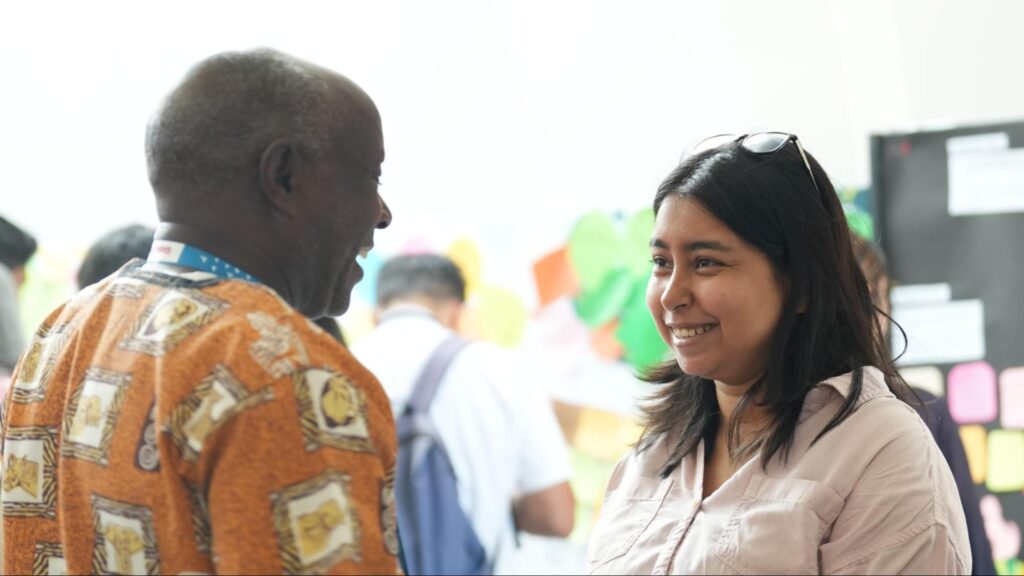
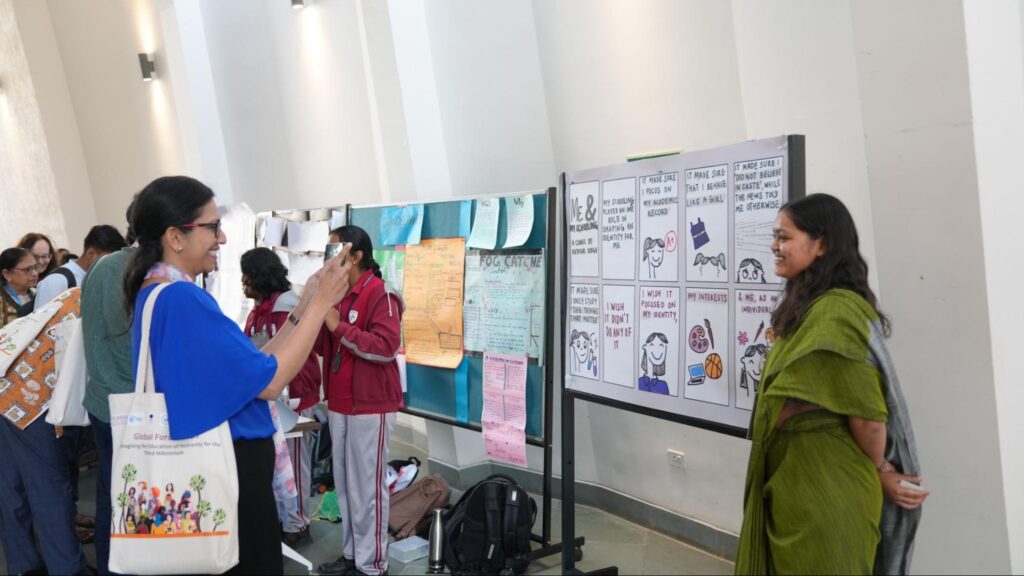
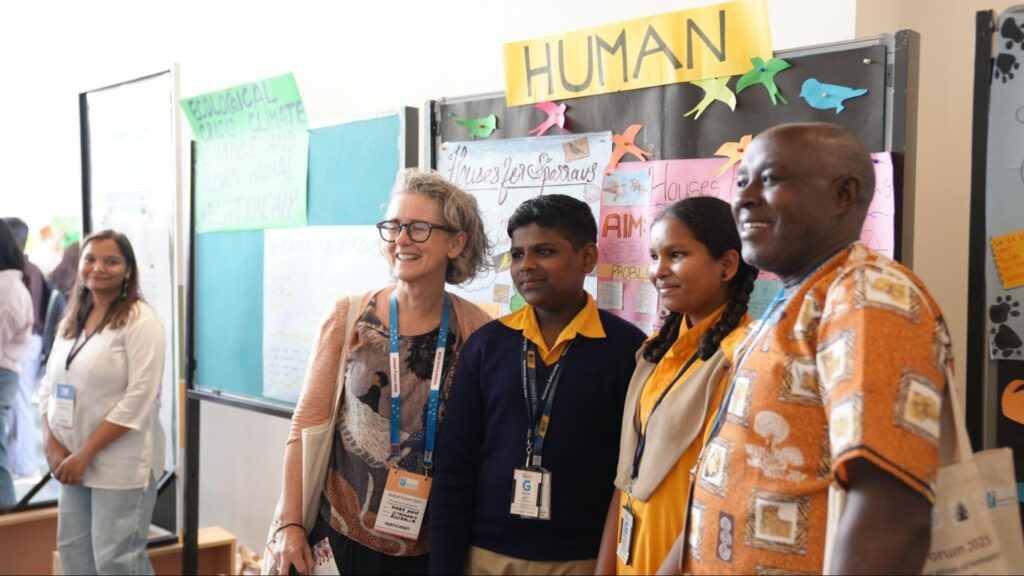
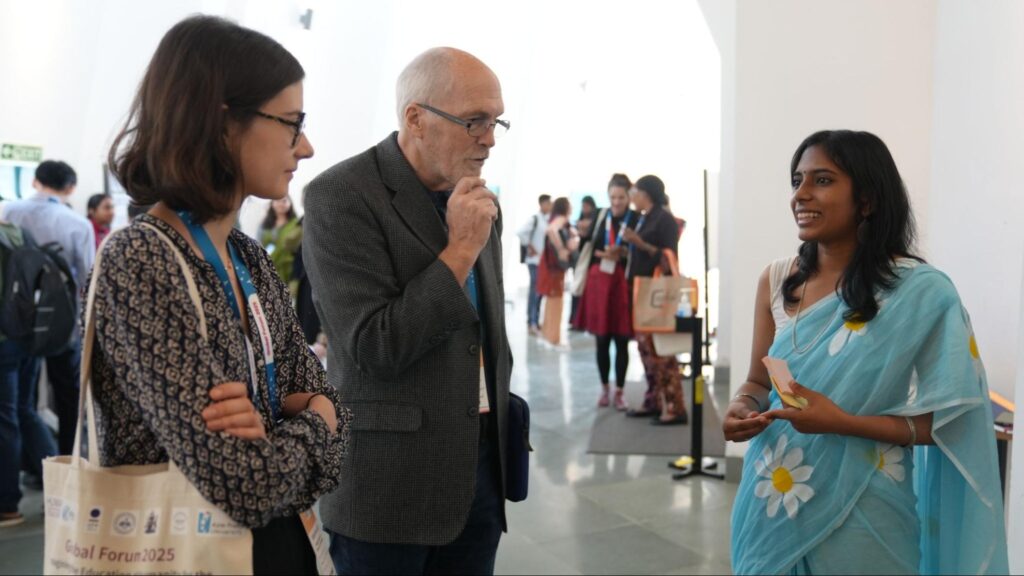
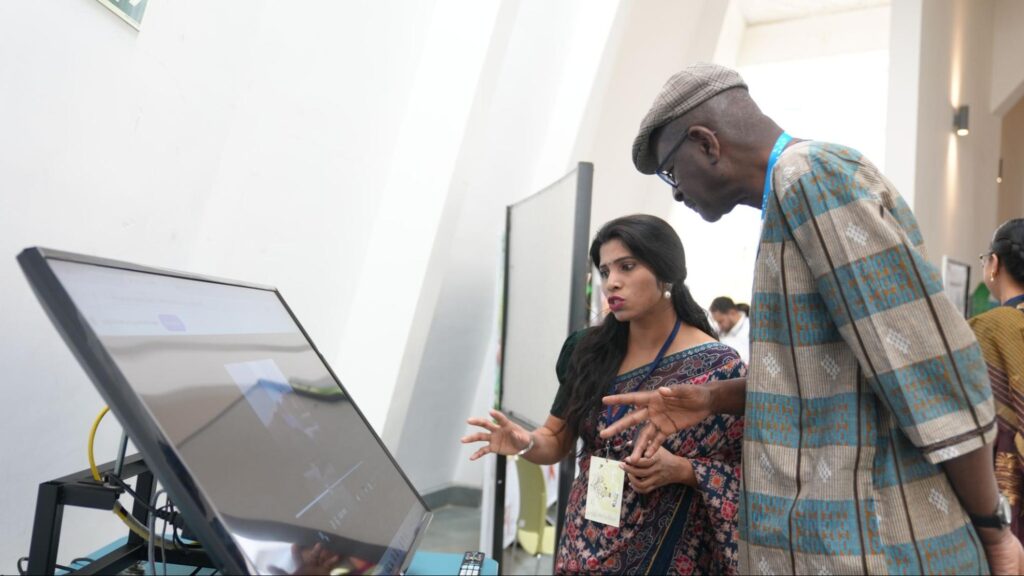
Community Goods Fair
During breaks in activities, in one of the university’s areas there was a fair with various products sold by the local community, handicrafts, typical foods, accessories, plants, vegetables, fruits, among other things.
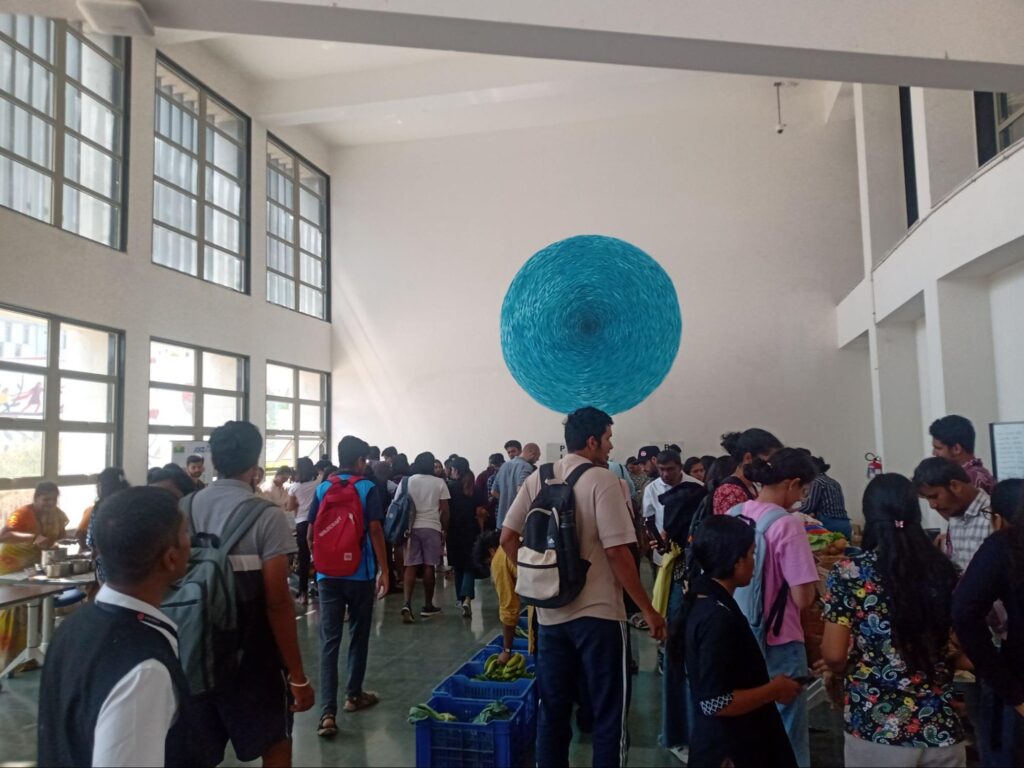
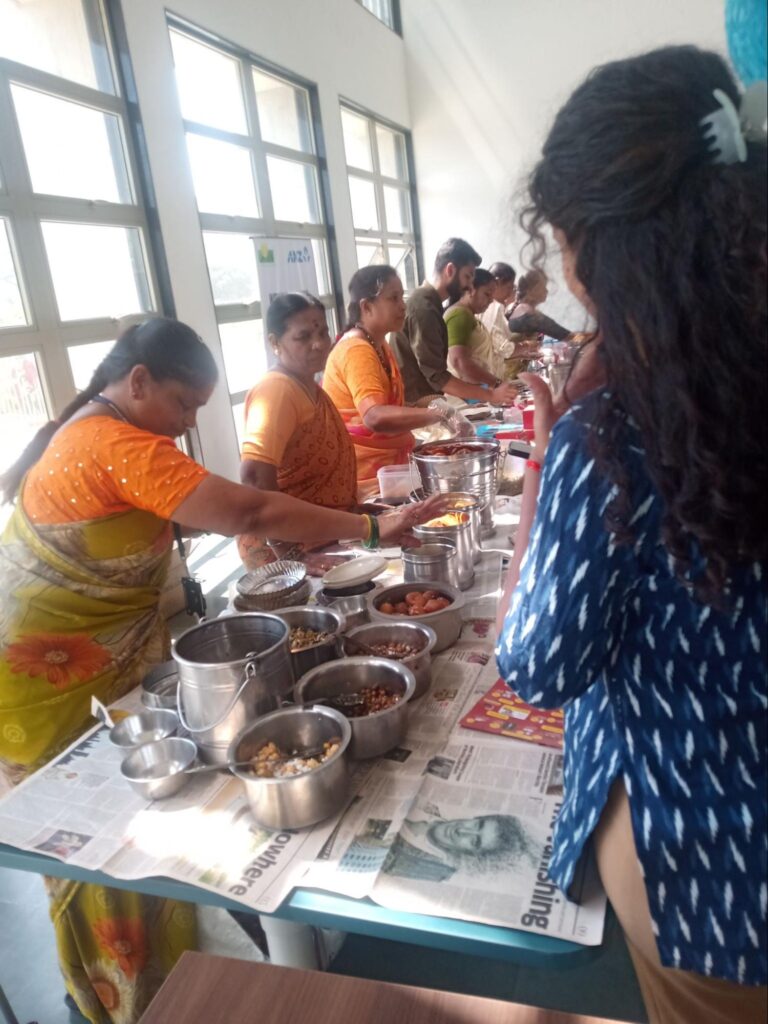
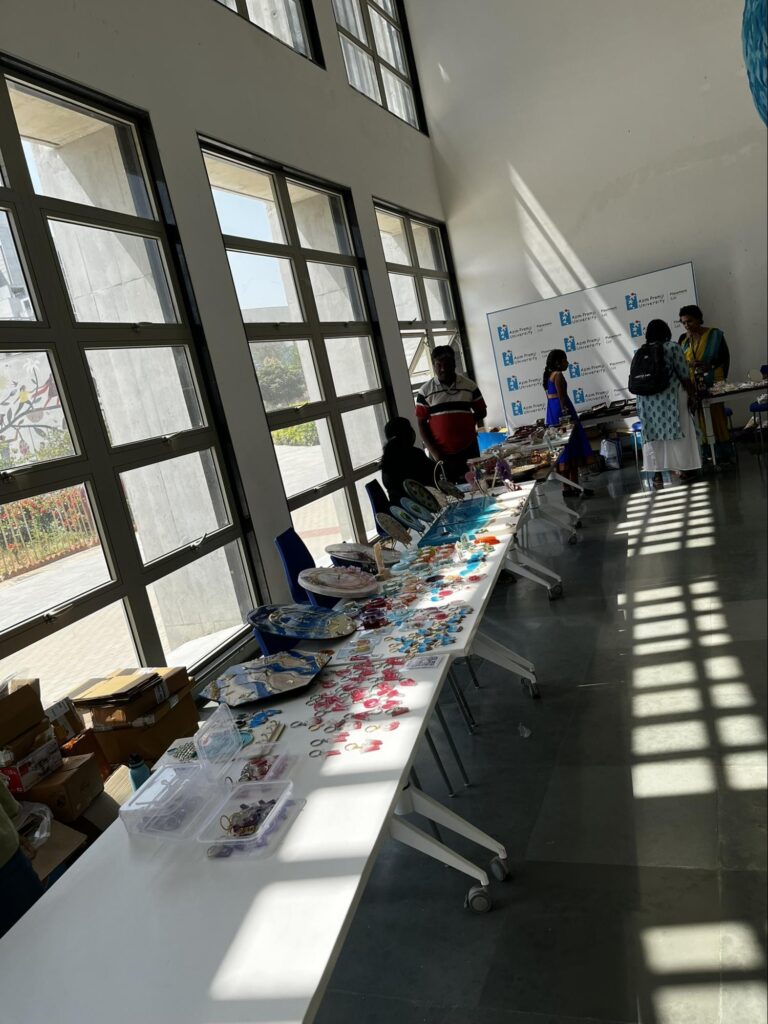
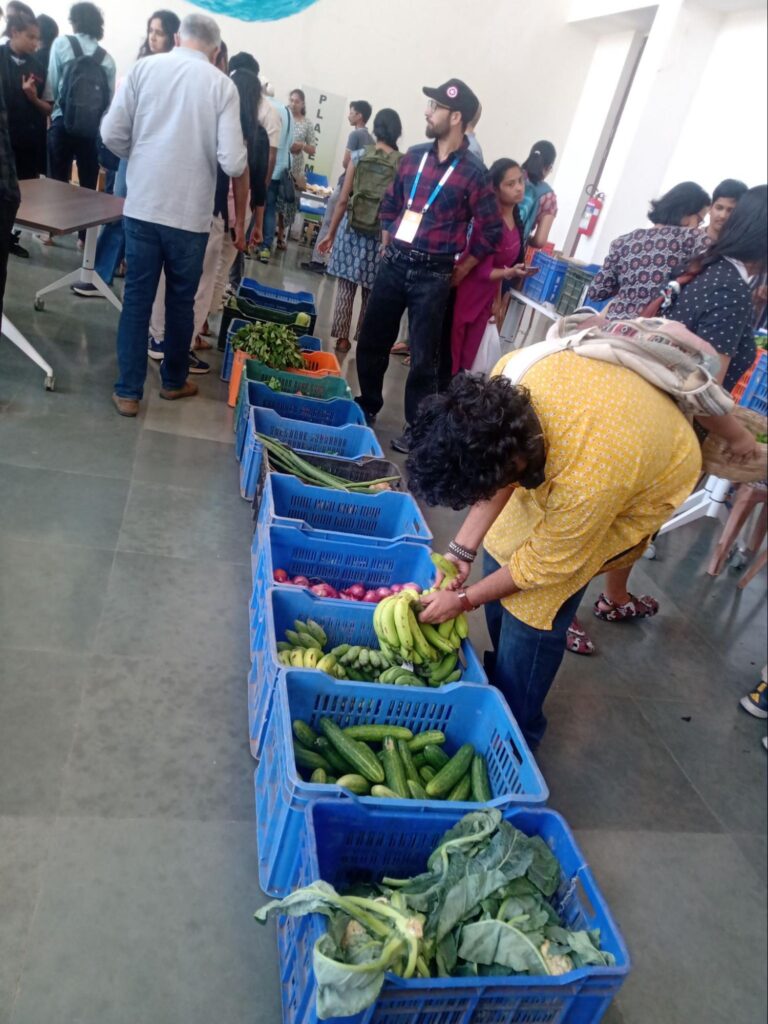
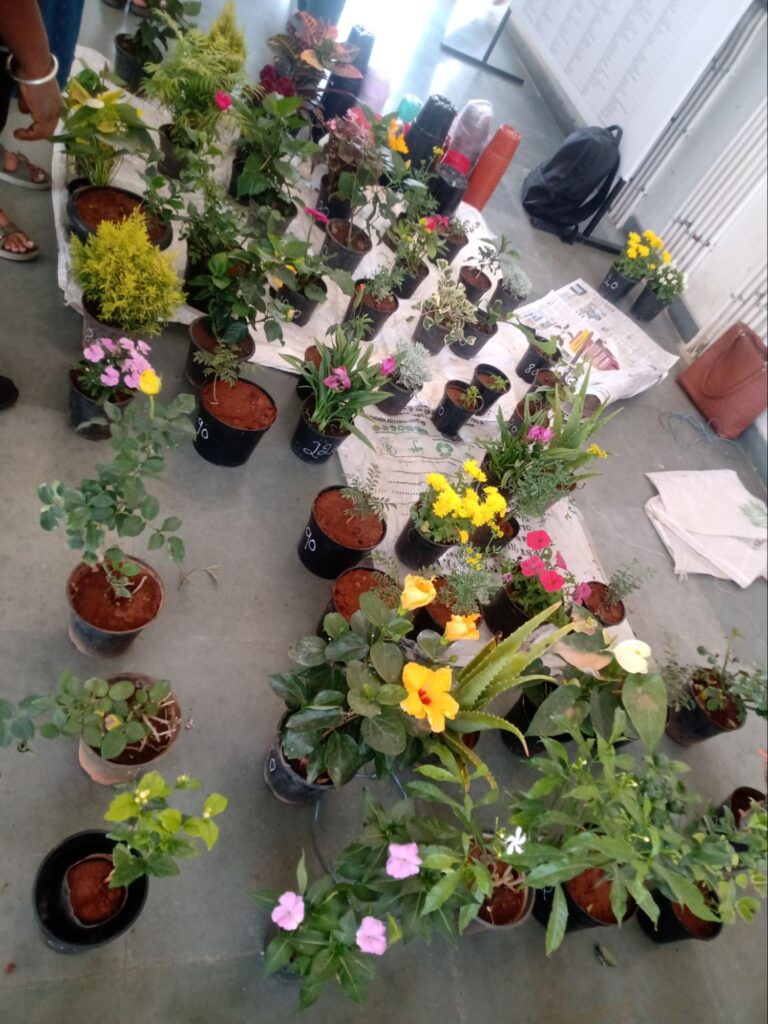
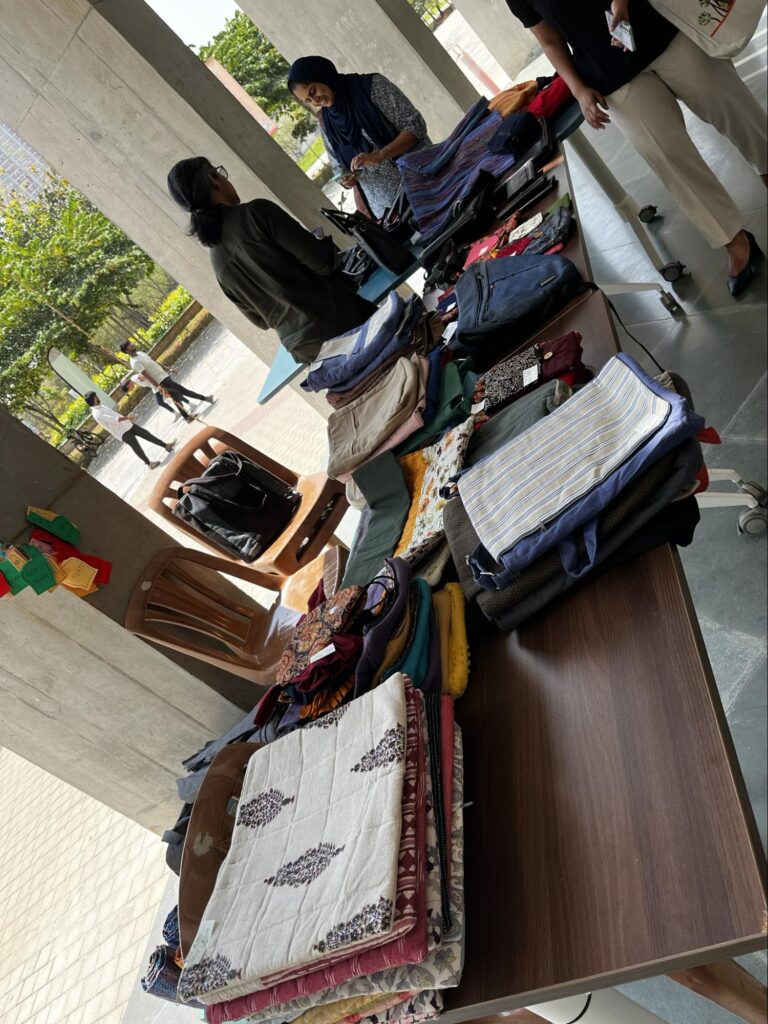
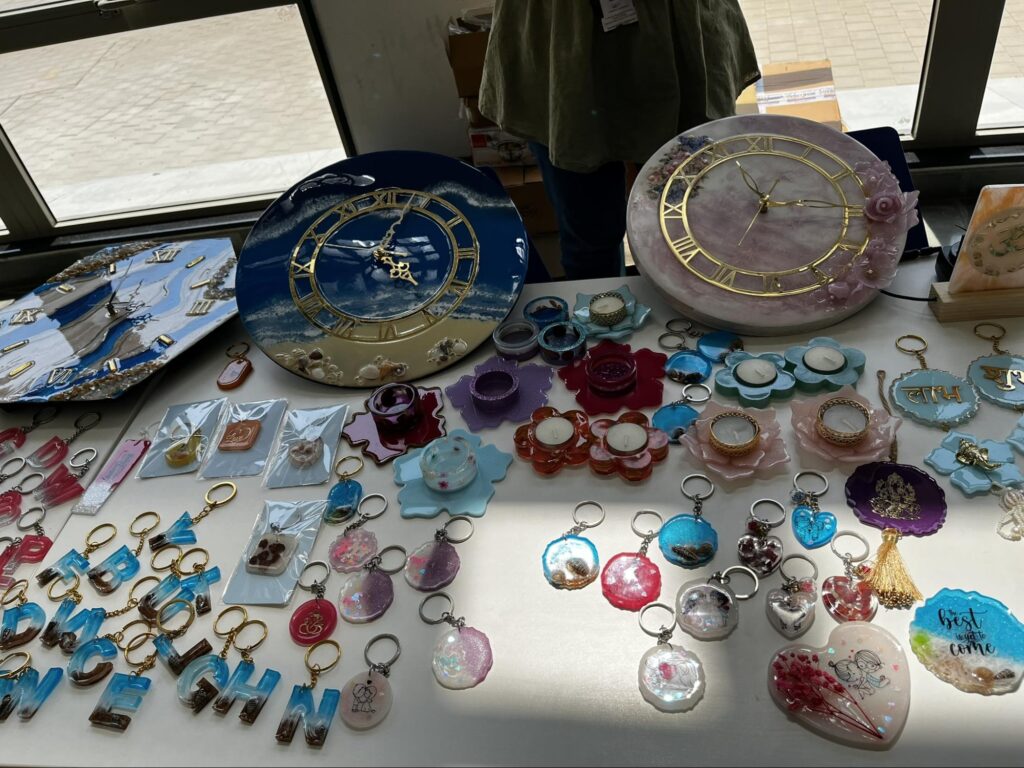
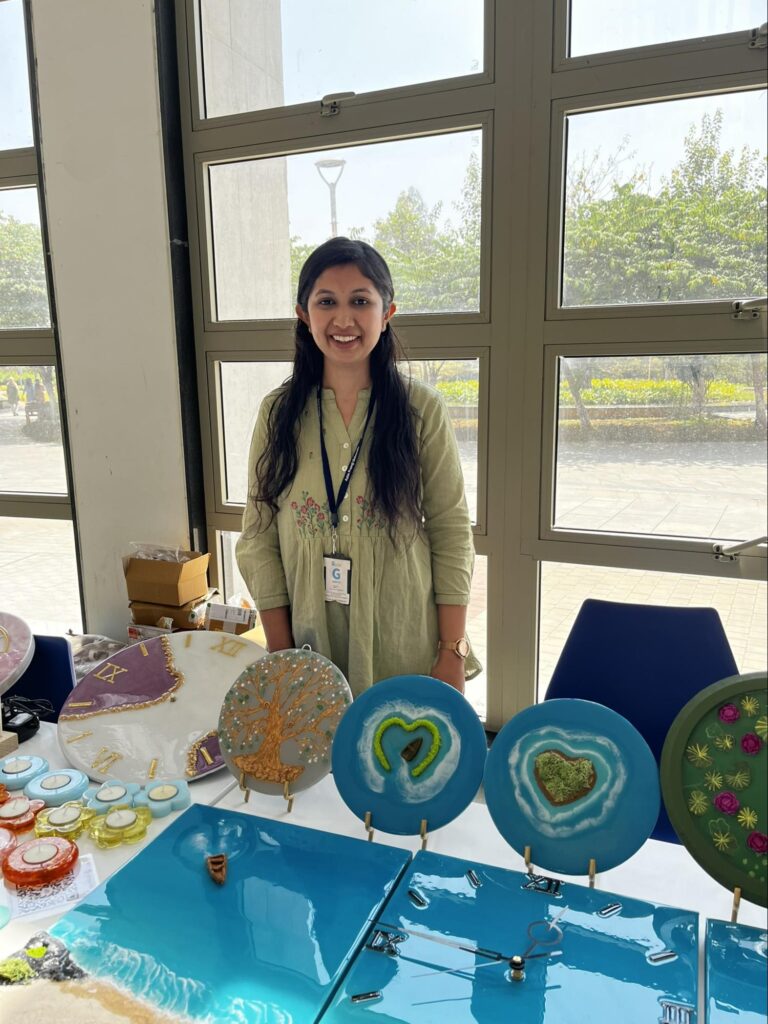
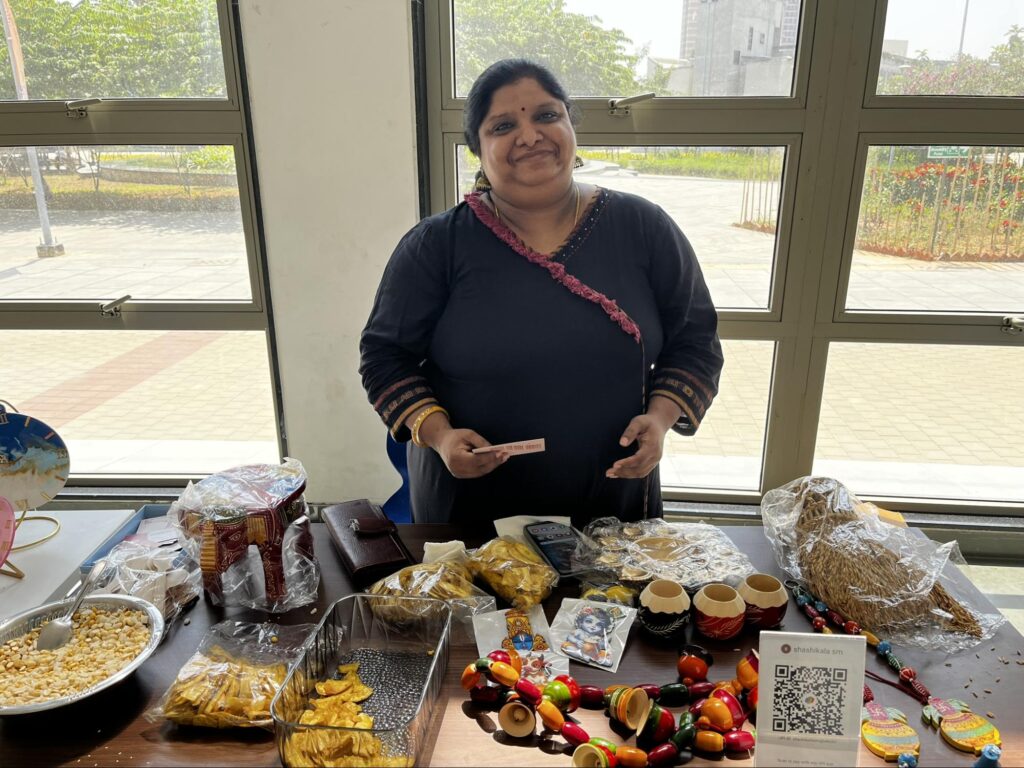
People in India are very friendly and generous. I received a treat from this exhibitor who wanted me to try one of the typical foods she sold at her stall. I thanked her, ate and of course I couldn’t help but record this kindness. If you want to get to know more about the work of these entrepreneur women, you can visit their instagram @namsante_shop
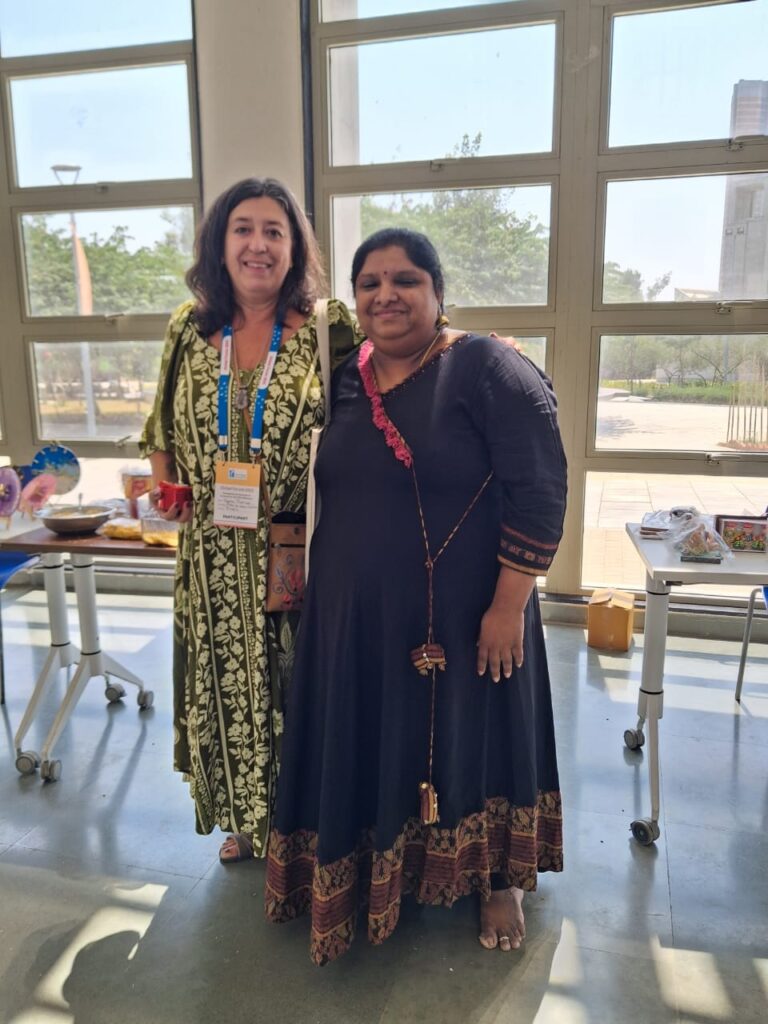

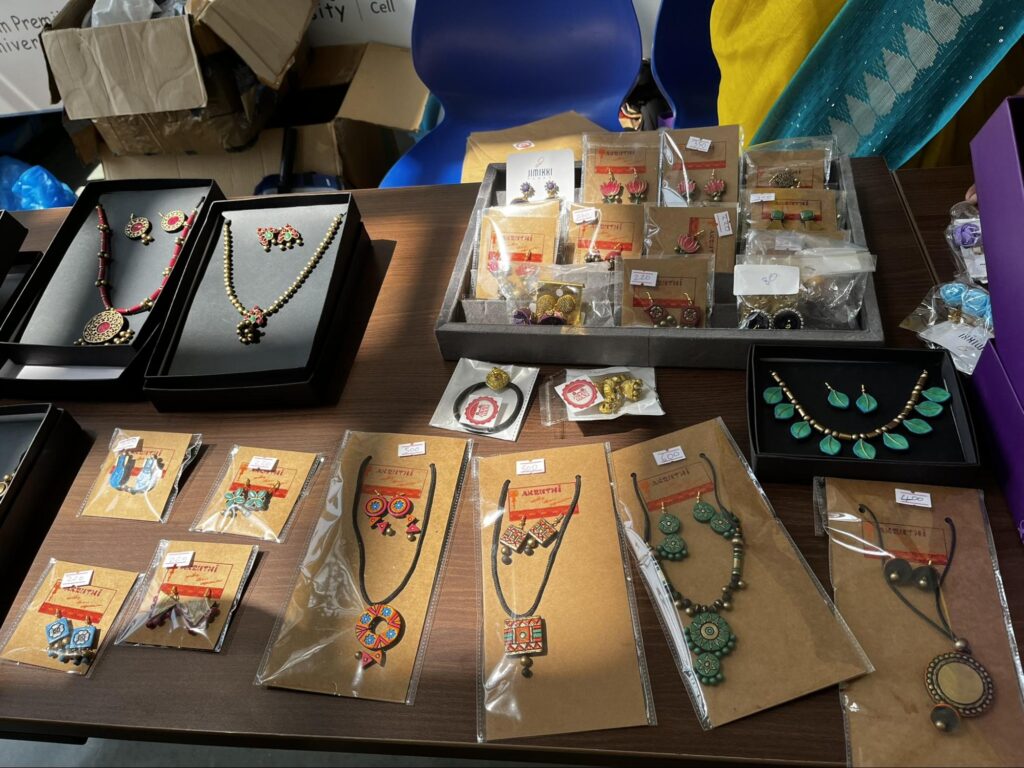
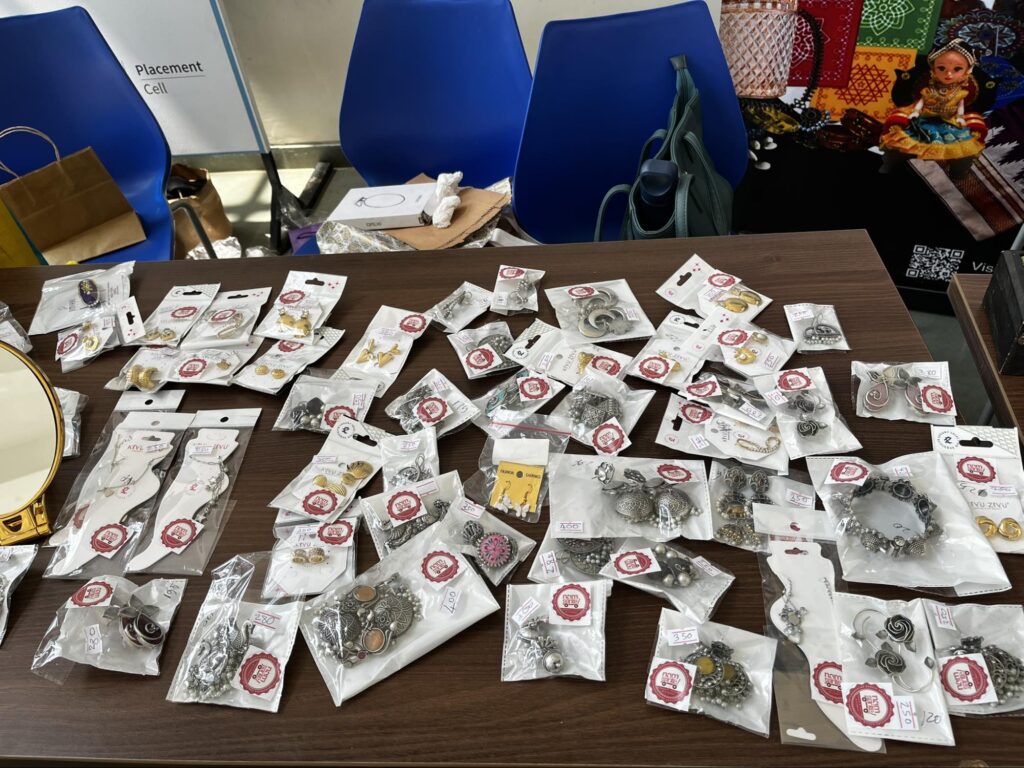
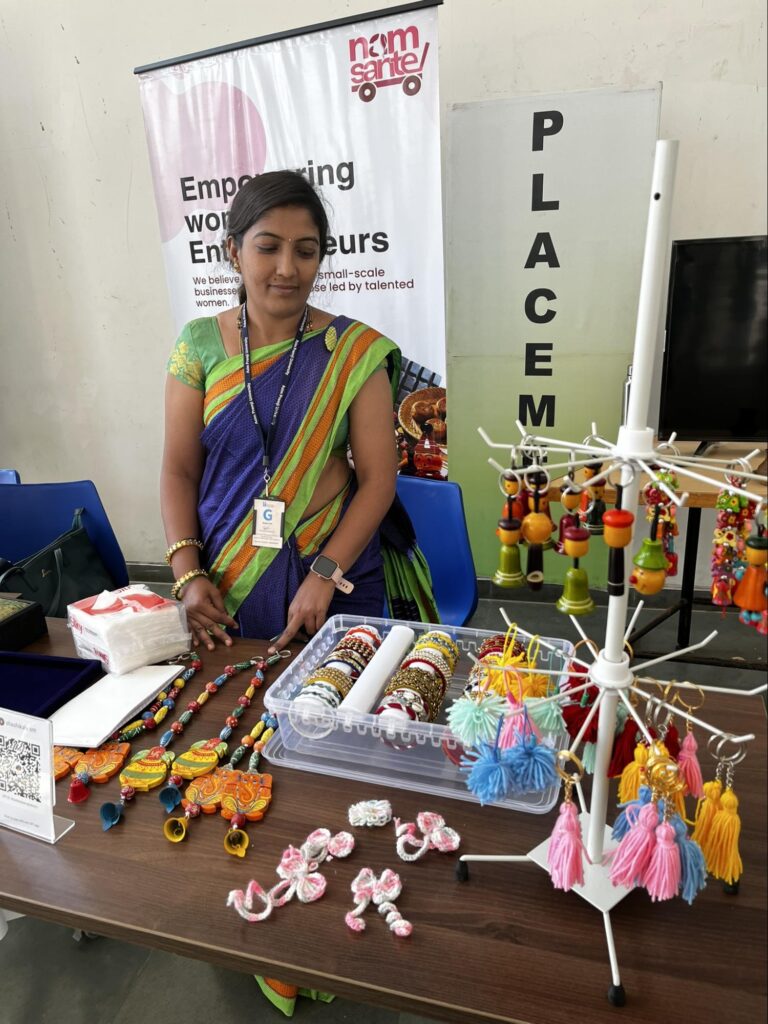
At the end of the day’s program, we had some cultural presentations, all of them beautiful, such as the presentation by the group Chala Wahi Des: Go to that Land. Formed by three women from different parts of India, together they celebrated the strength and delicacy of female voices that carry wisdom through their songs and poetry. Better than talking about them, is showing a small excerpt from the presentation.
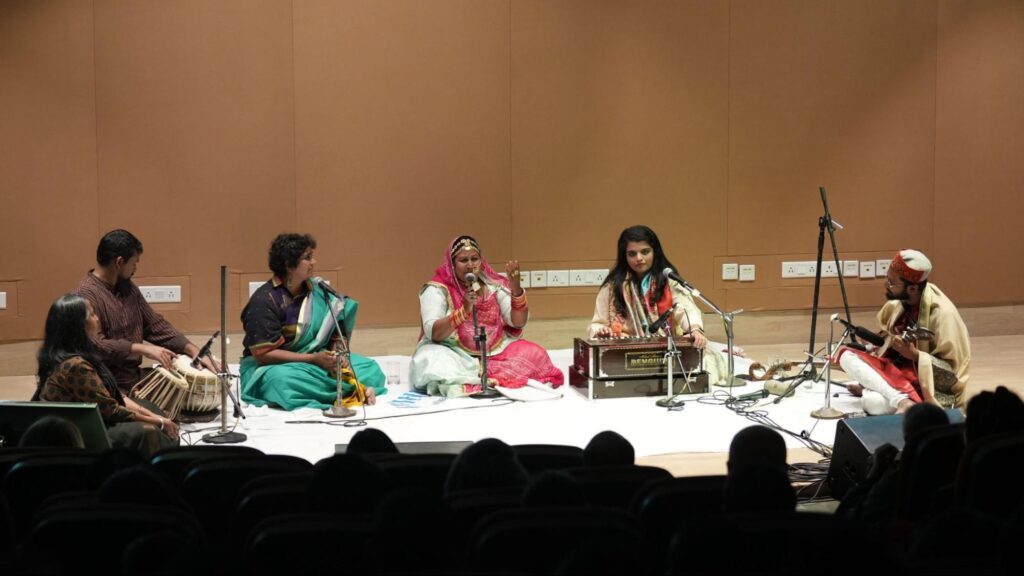
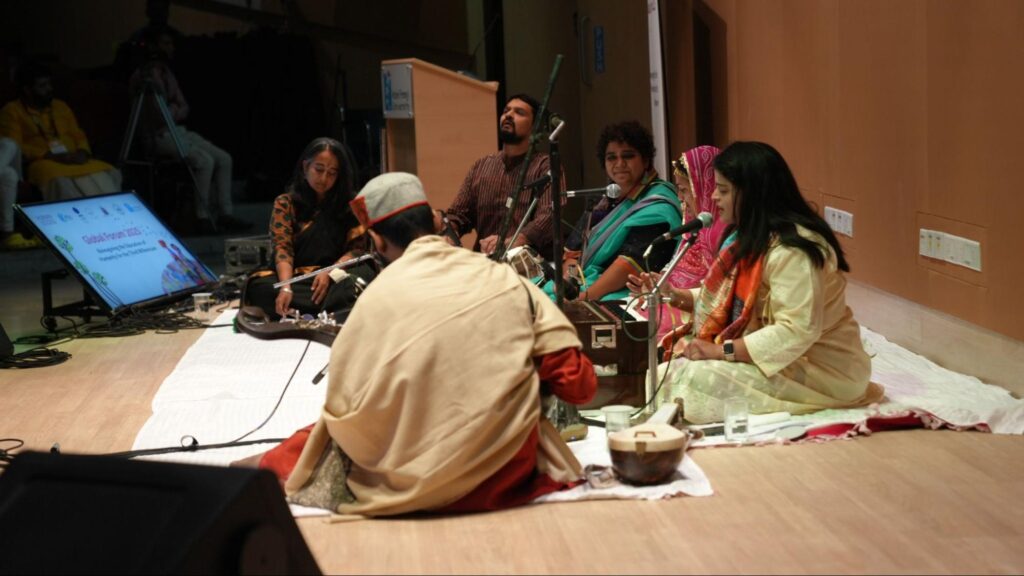
At the end of the second day we had a musical performance at the University Amphitheater. The performance was a Theatrical Dance: Yakshagana – A Drama from the South of India
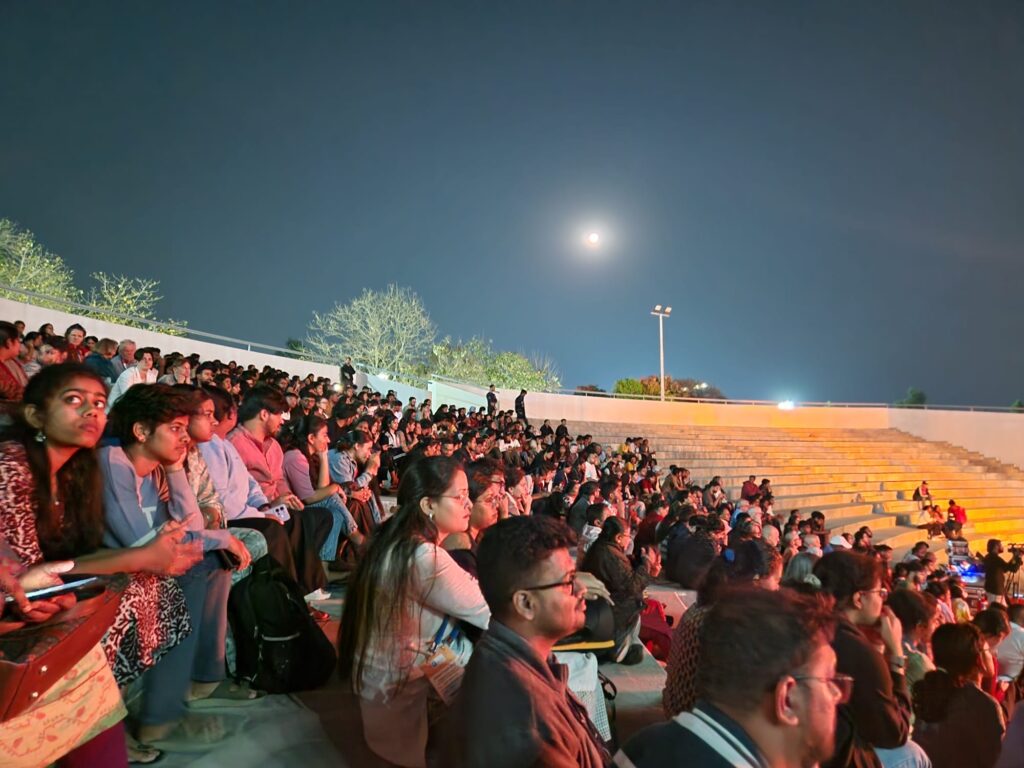
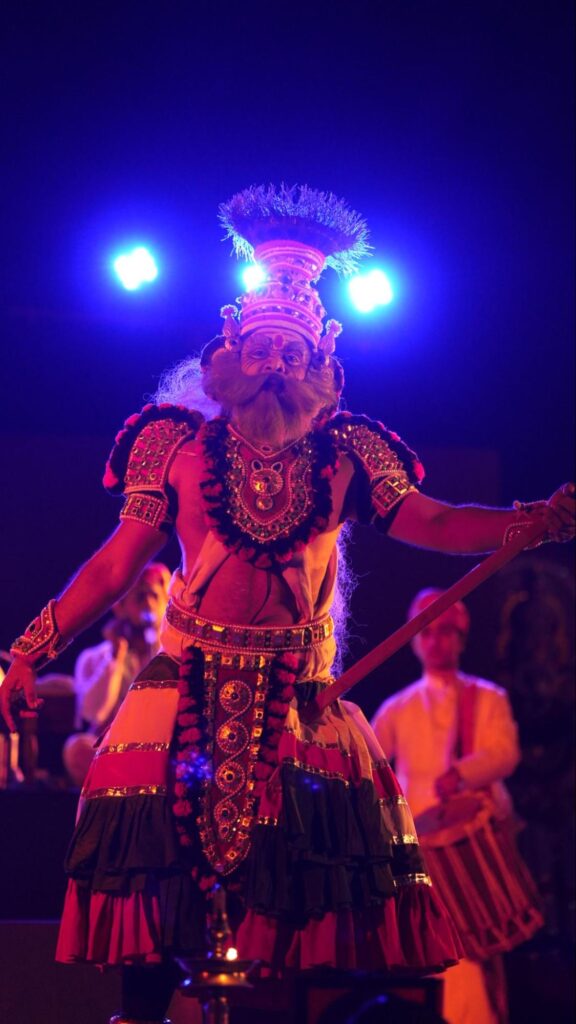
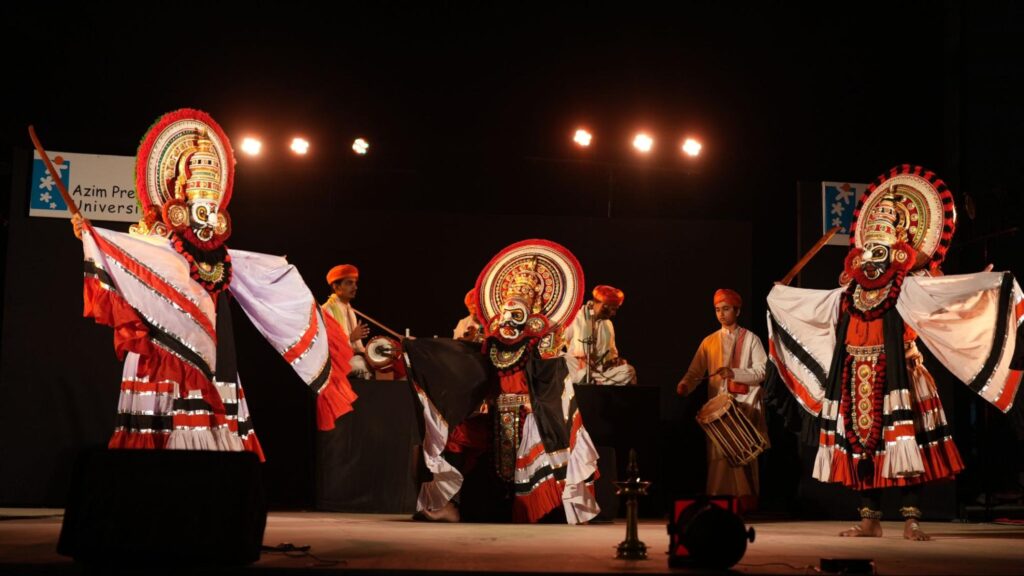
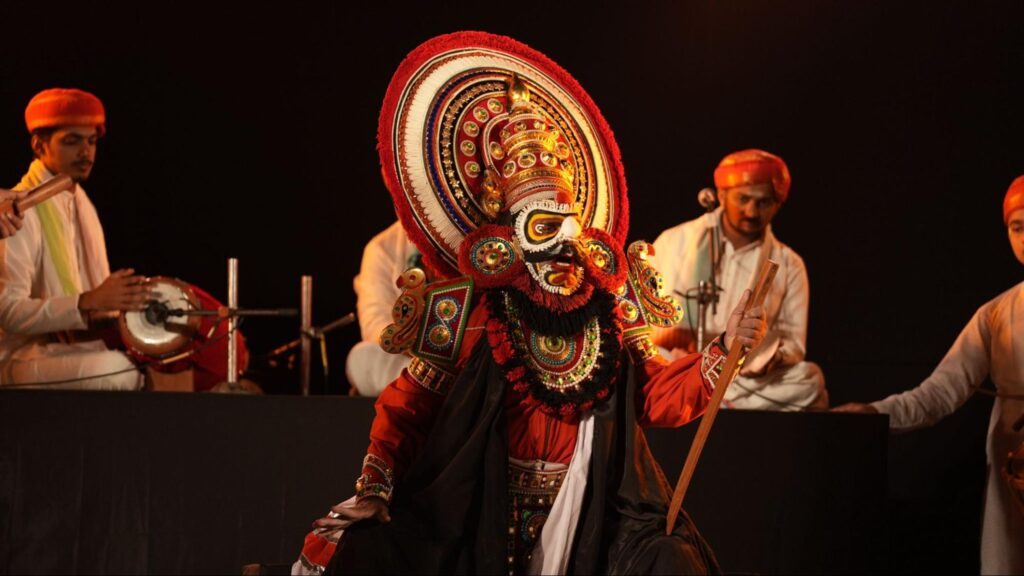
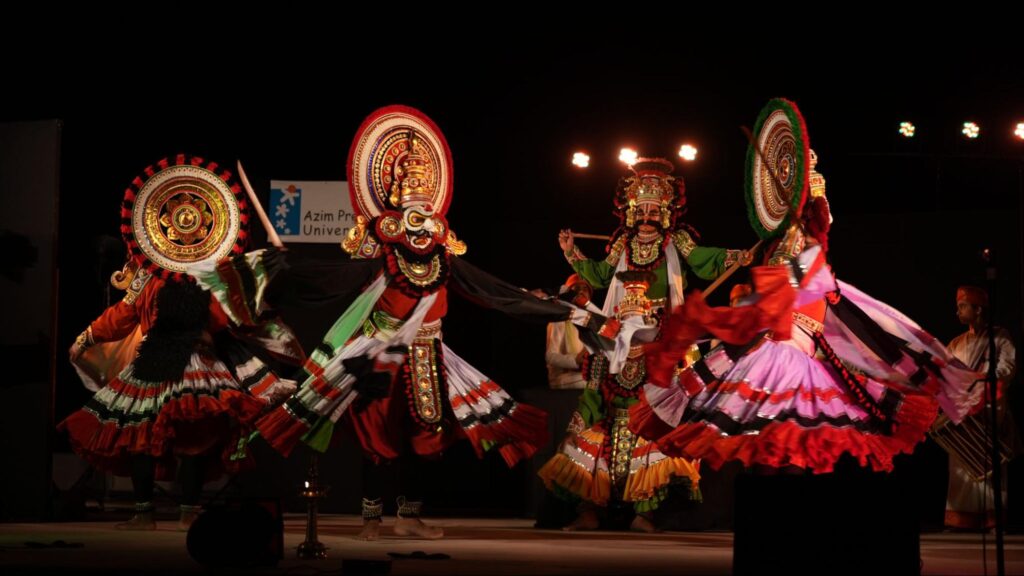
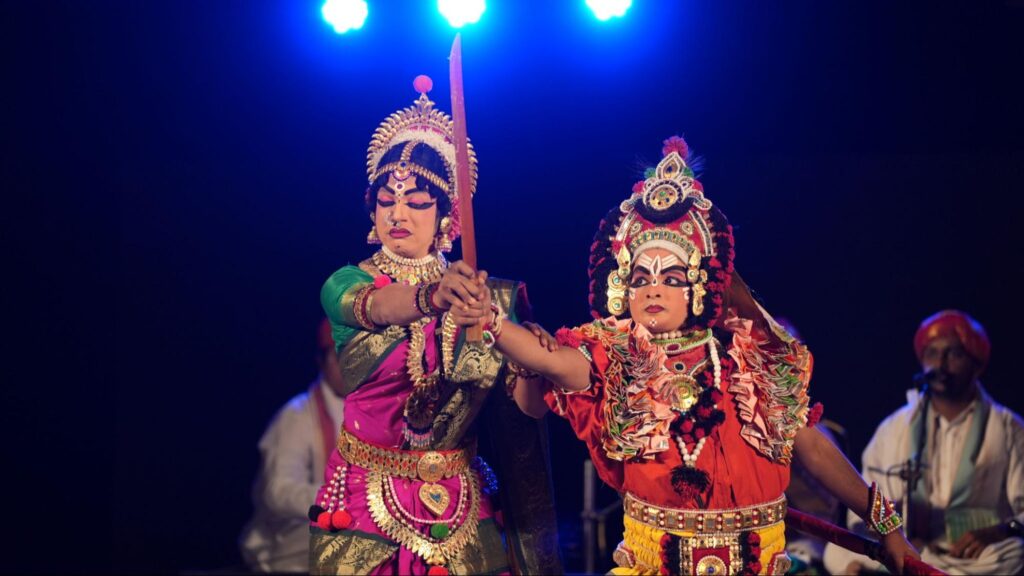
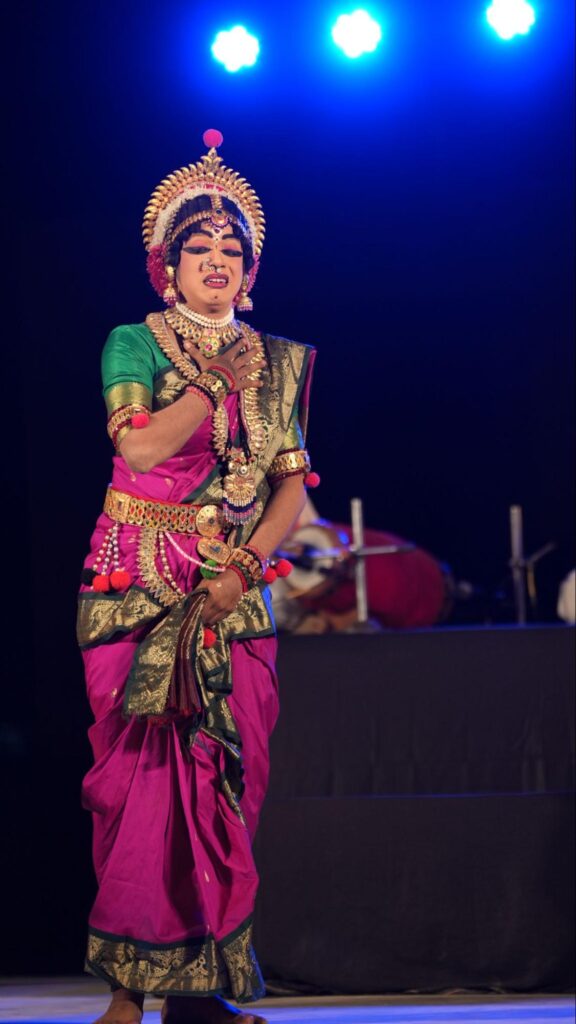
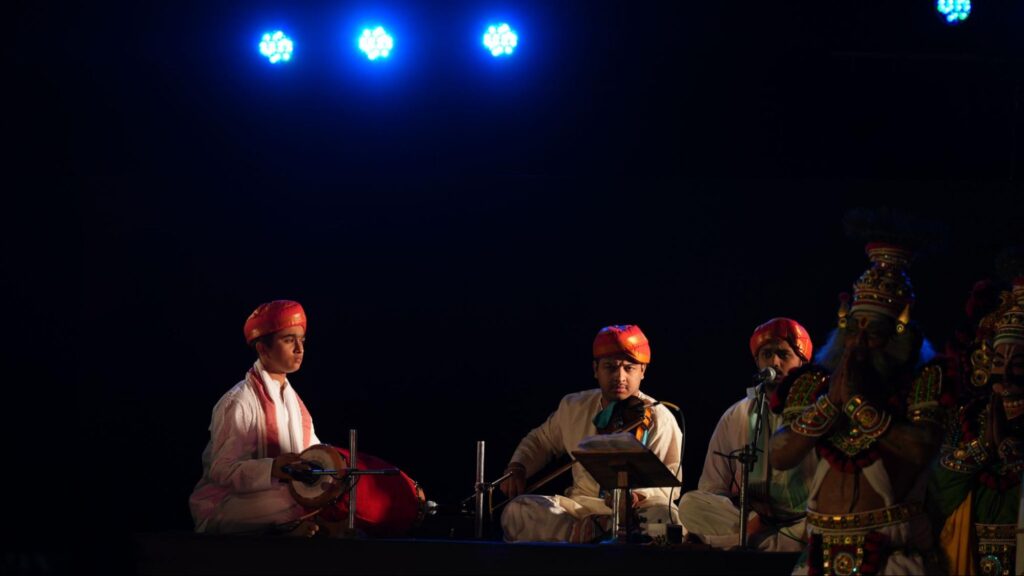
To close the activities of the last day of the Forum we had a beautiful musical performance: Prayer for Peace with the Chennai Children’s Choir, of Nalandaway Foundation.
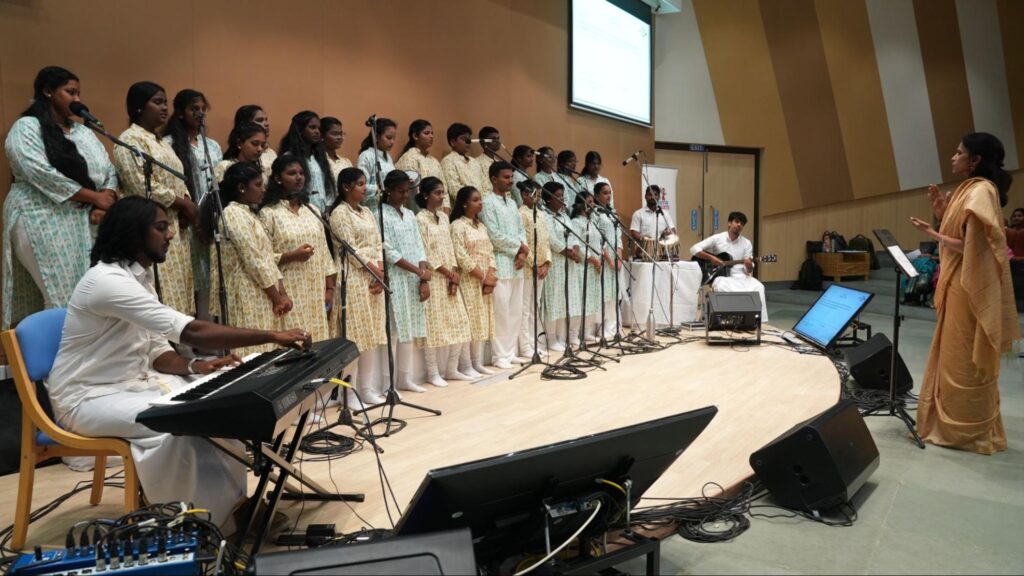
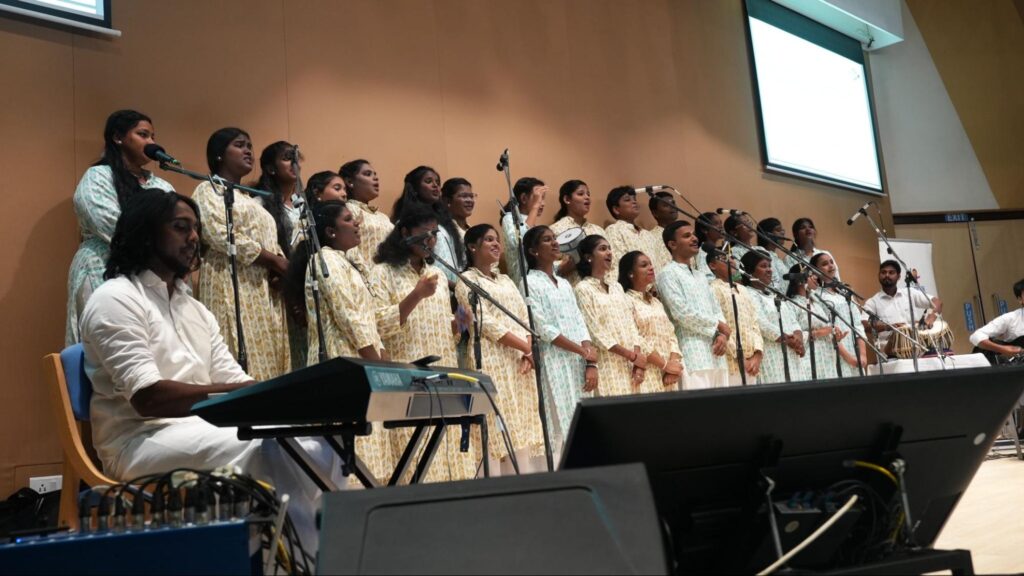
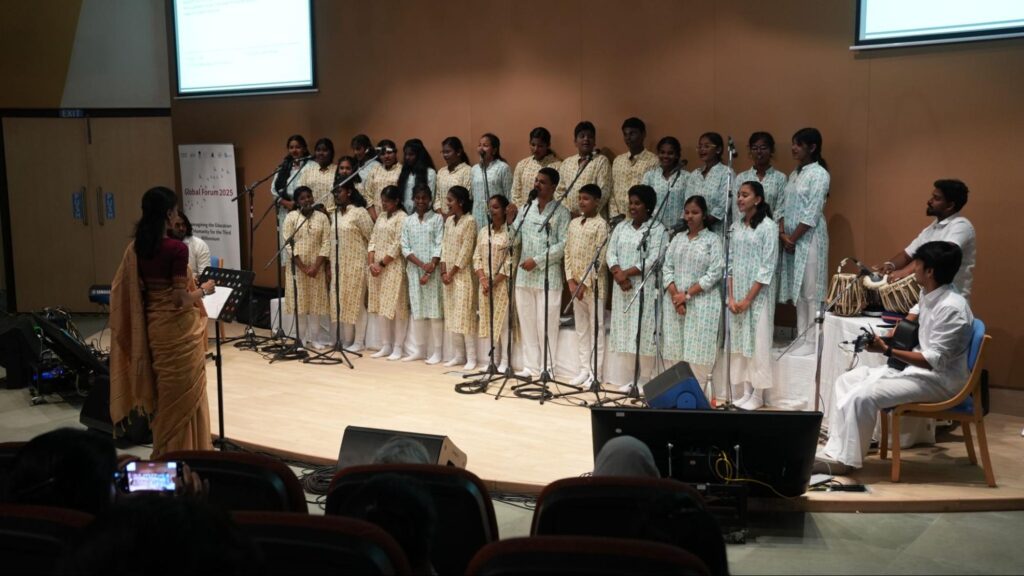
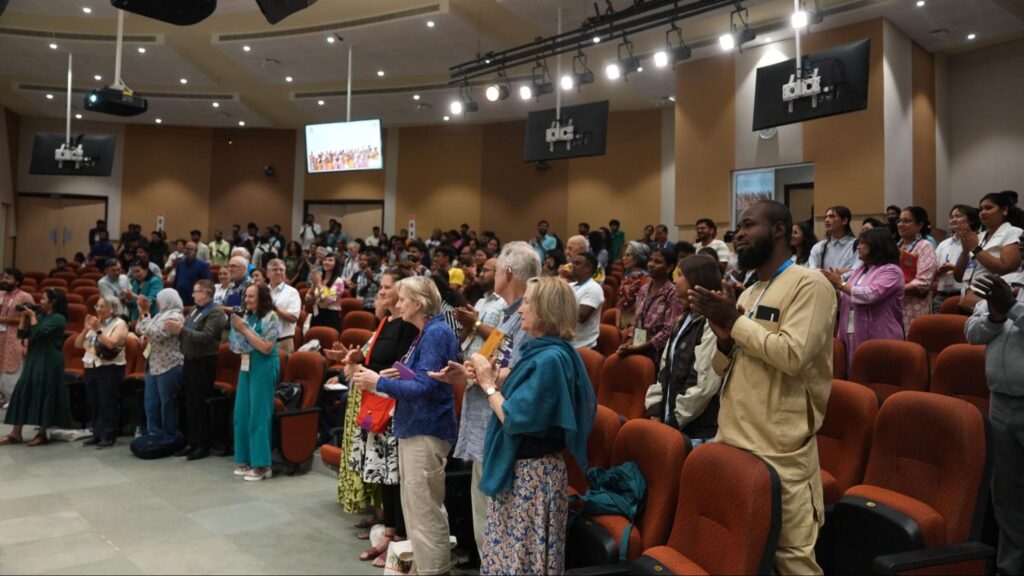
We all left there with our hearts and souls filled with joy and hope. All the meetings, conversations, environments and bonds of friendship that were formed during this Forum will forever be kept in my heart.
We know the size of the responsibility and the challenges that lie ahead. This union of aspirations will give us the necessary foundation to plant the seeds of change. Just like working ants, which alone can do almost nothing and can easily be crushed, when together and united in a common purpose, they are capable of moving an elephant. In silence, worlds are created.
Thus, we will meet again, advancing in the drafting of the Declaration, contributing to achieving the highest level of humanity and inclusivity in educational processes, preparing the new generation of leaders so that their non-negotiable purpose is to create a more just, compassionate, sustainable, inclusive, engaged and ethical society.
We are part of this network, everyone is invited to participate in this dialogue. We aspire to be part of the change we want to see in the world. Join us!
Hands in prayer,
Regina Proença

